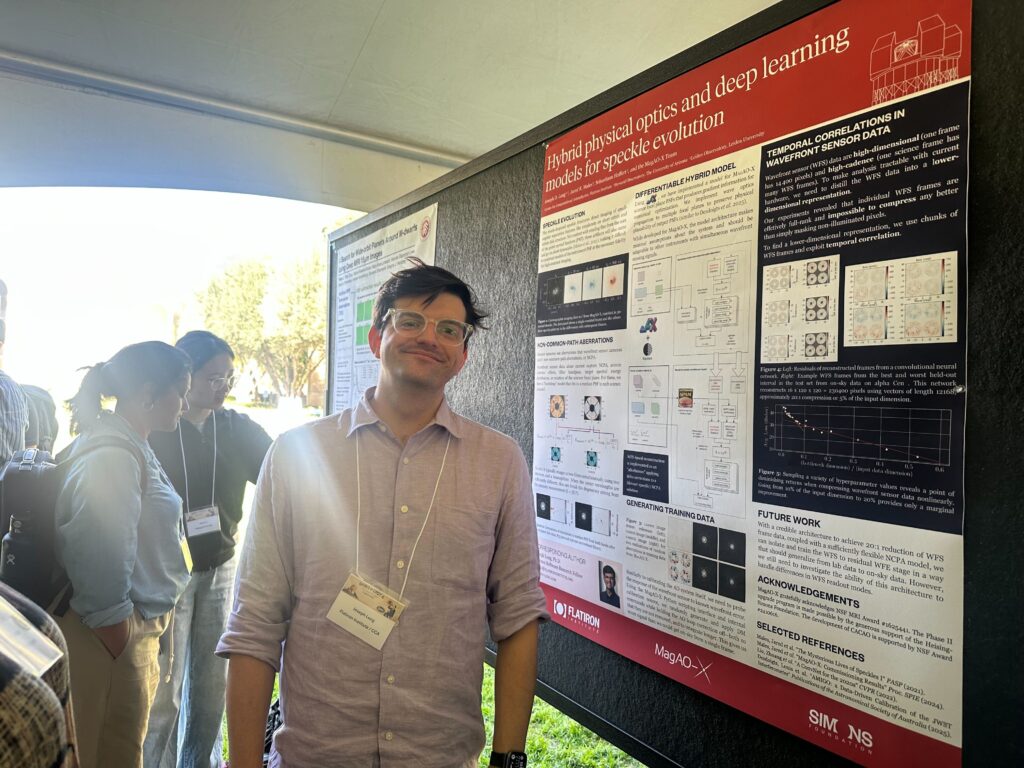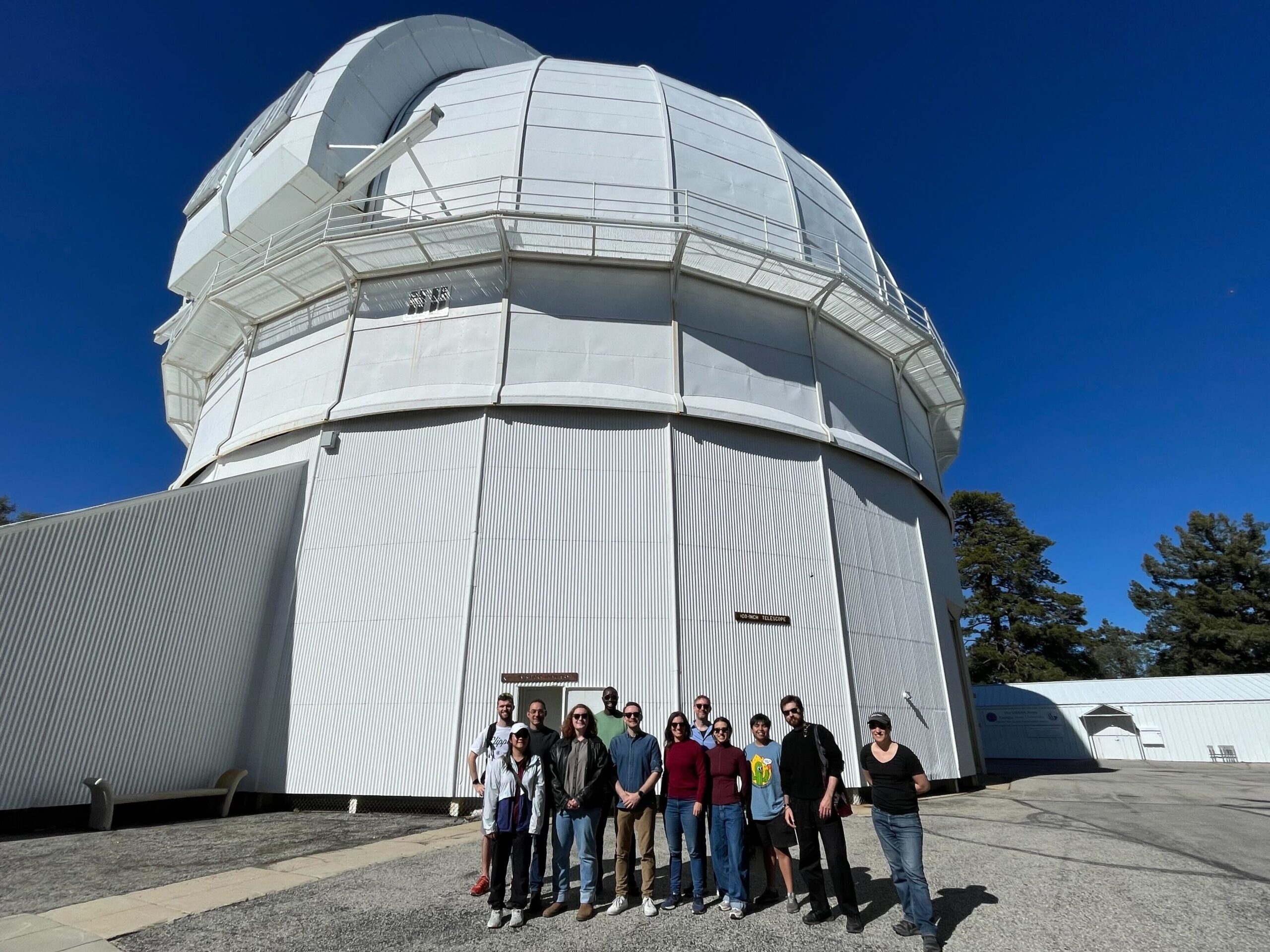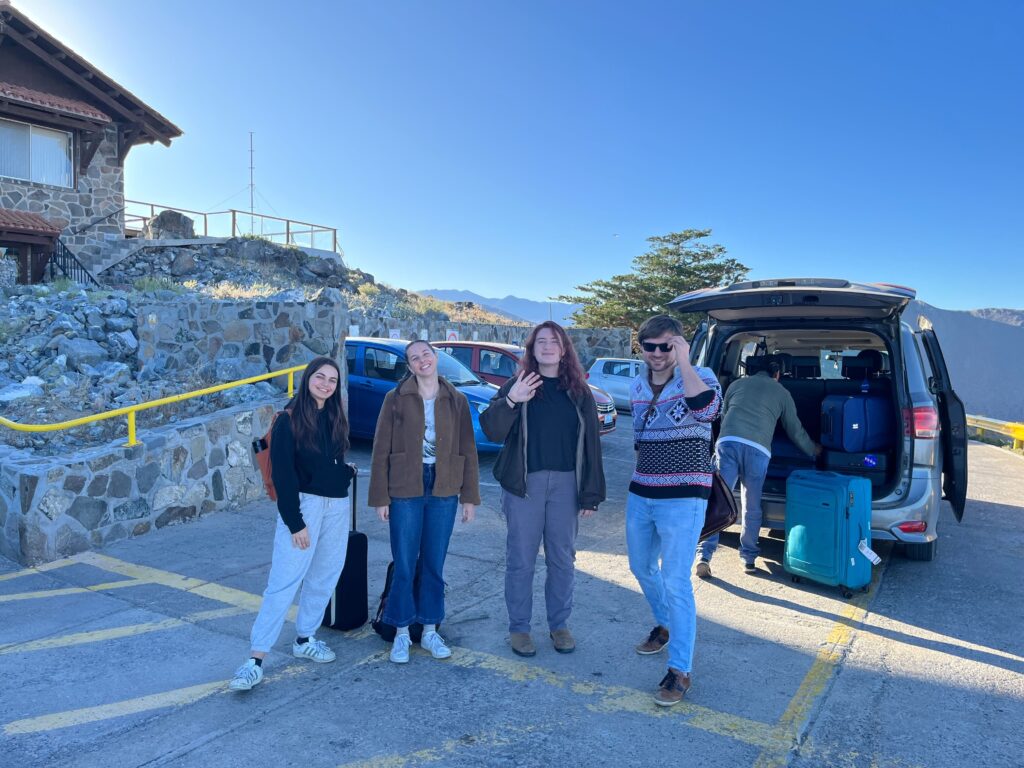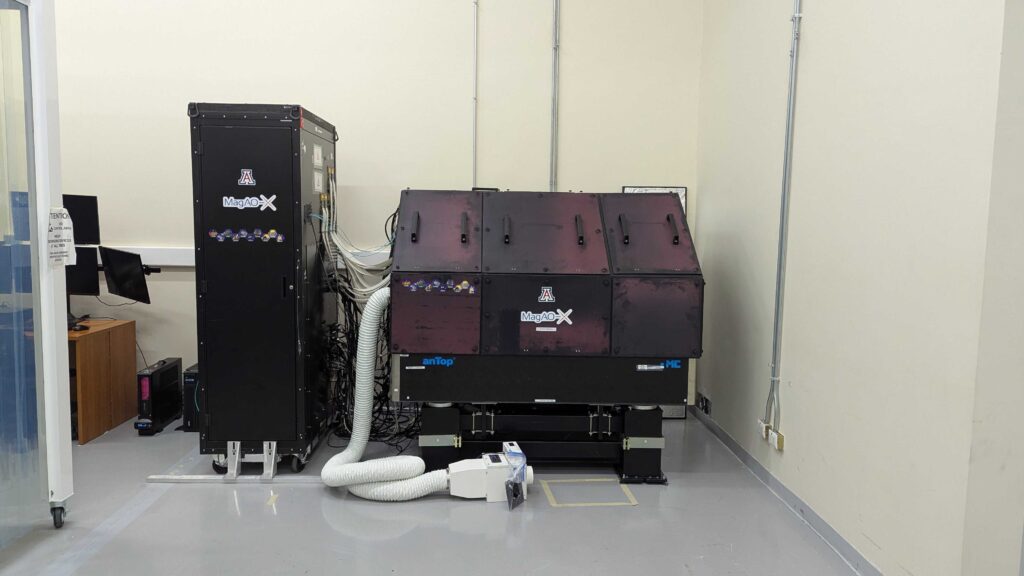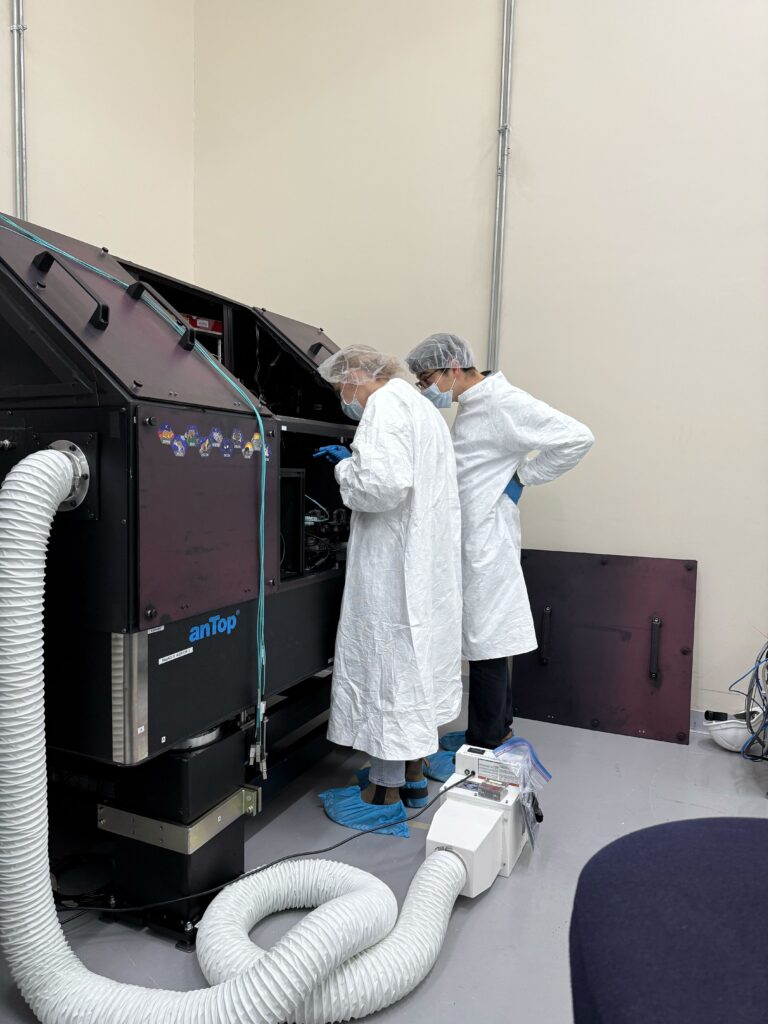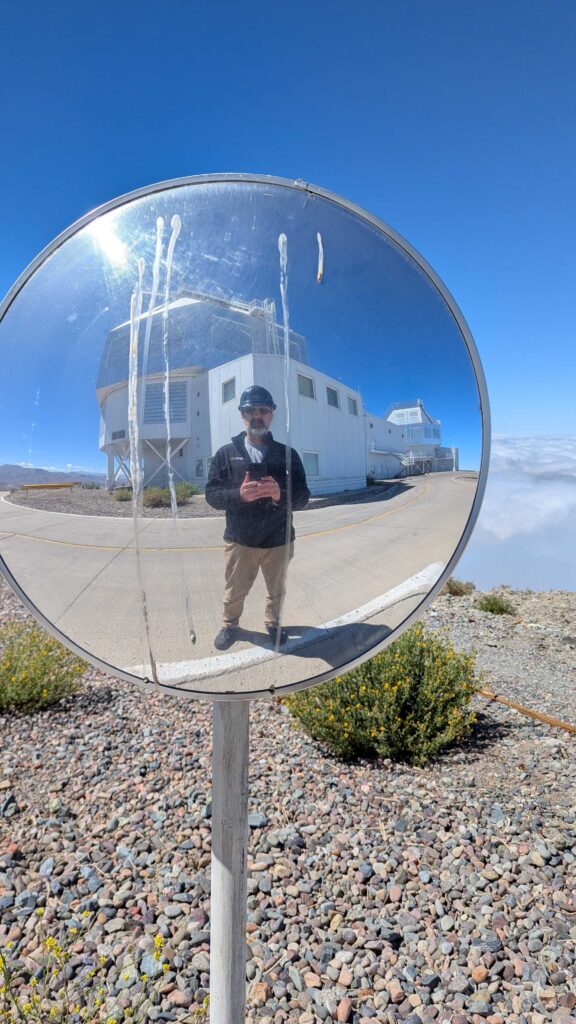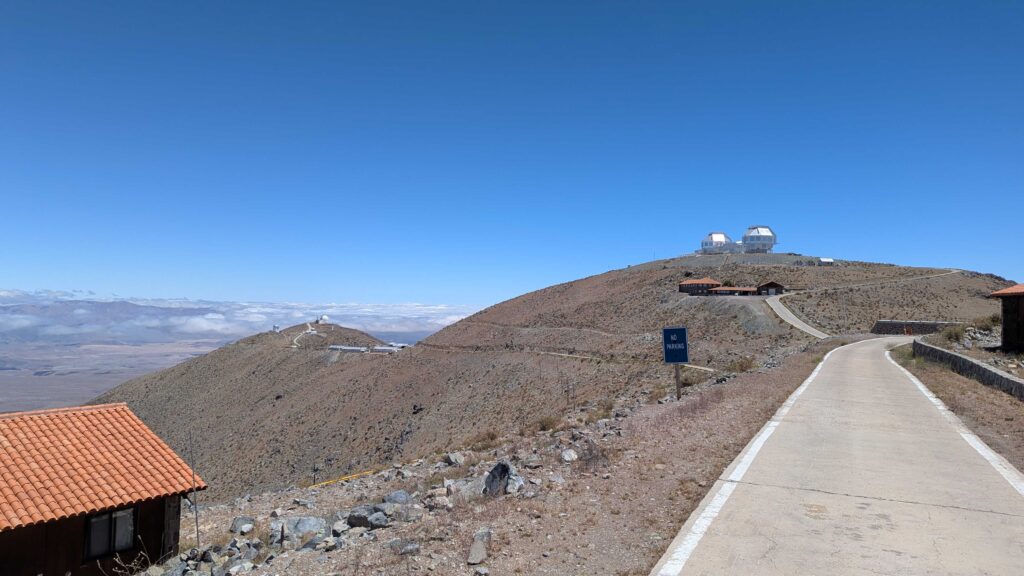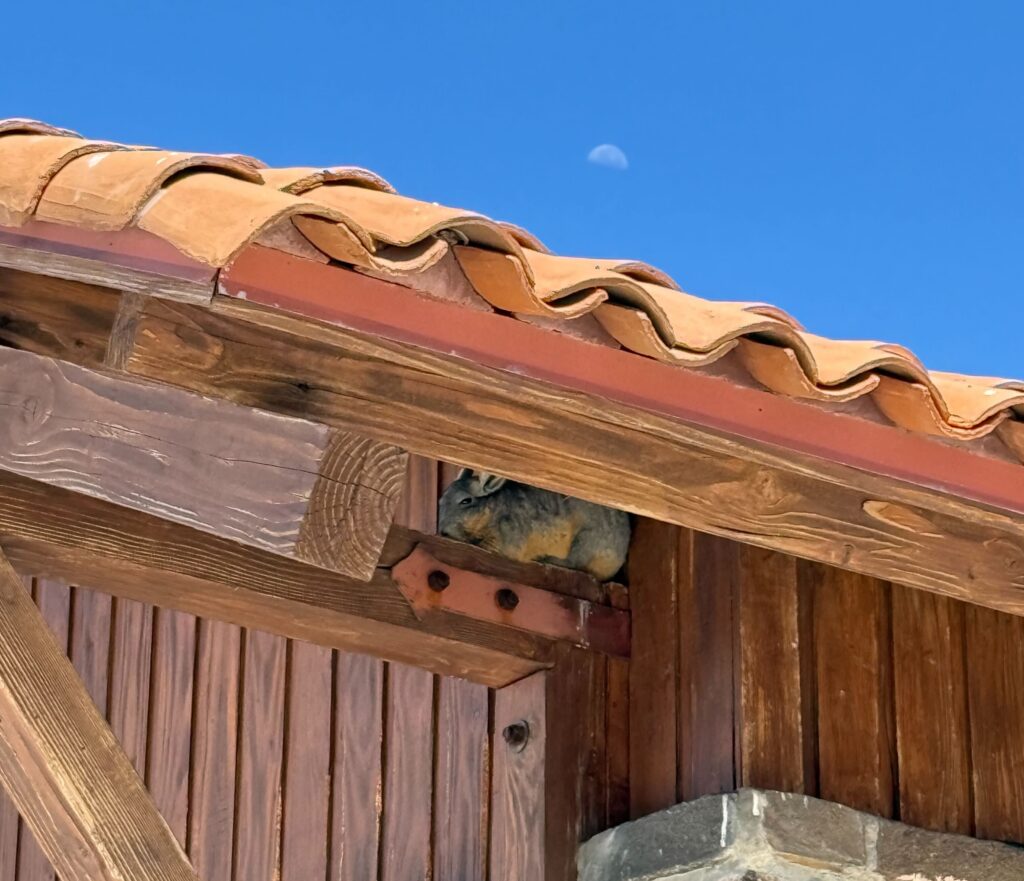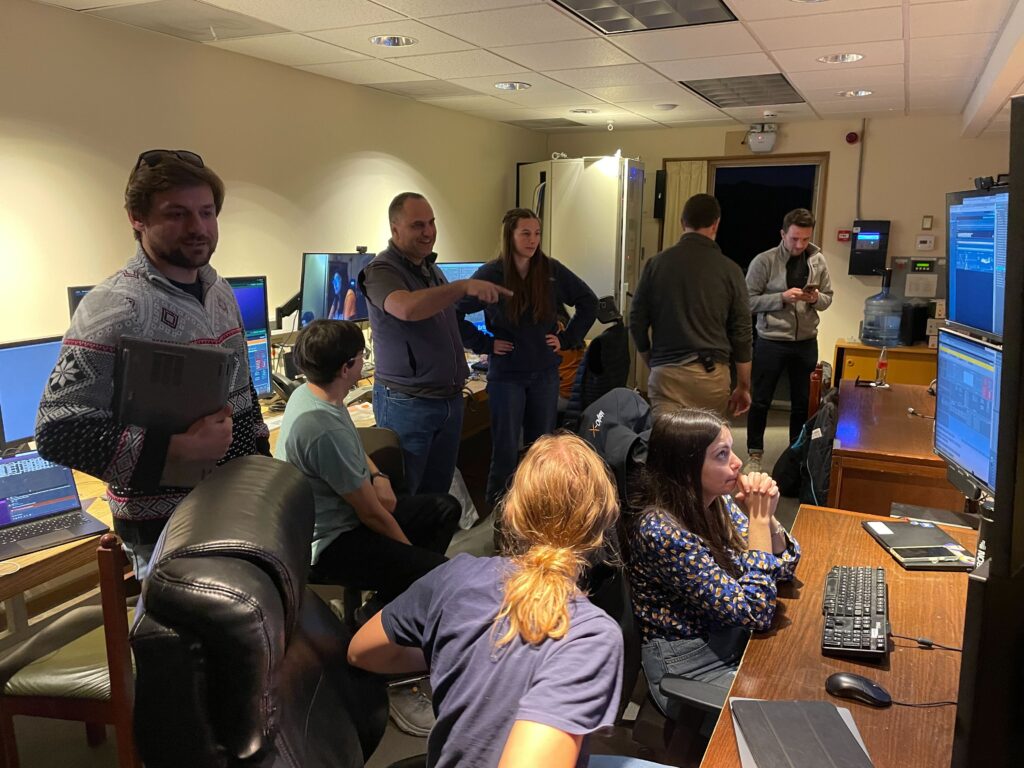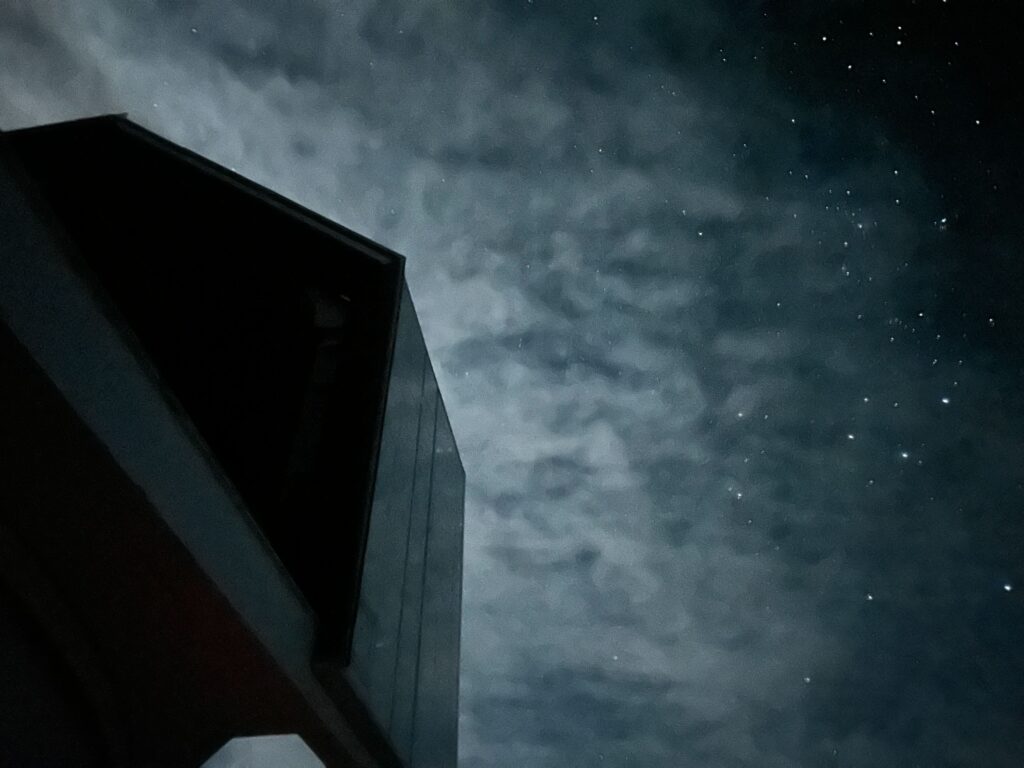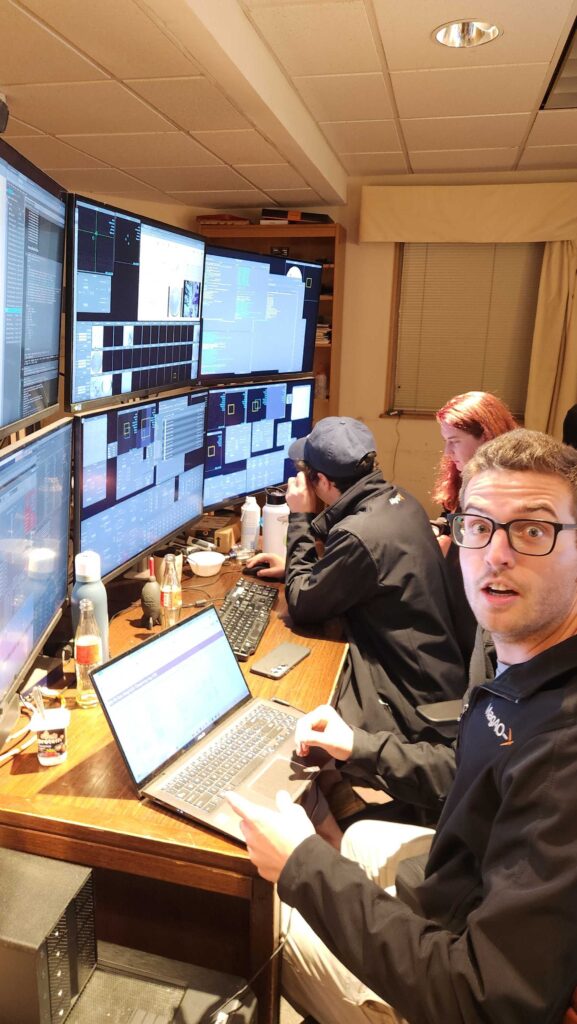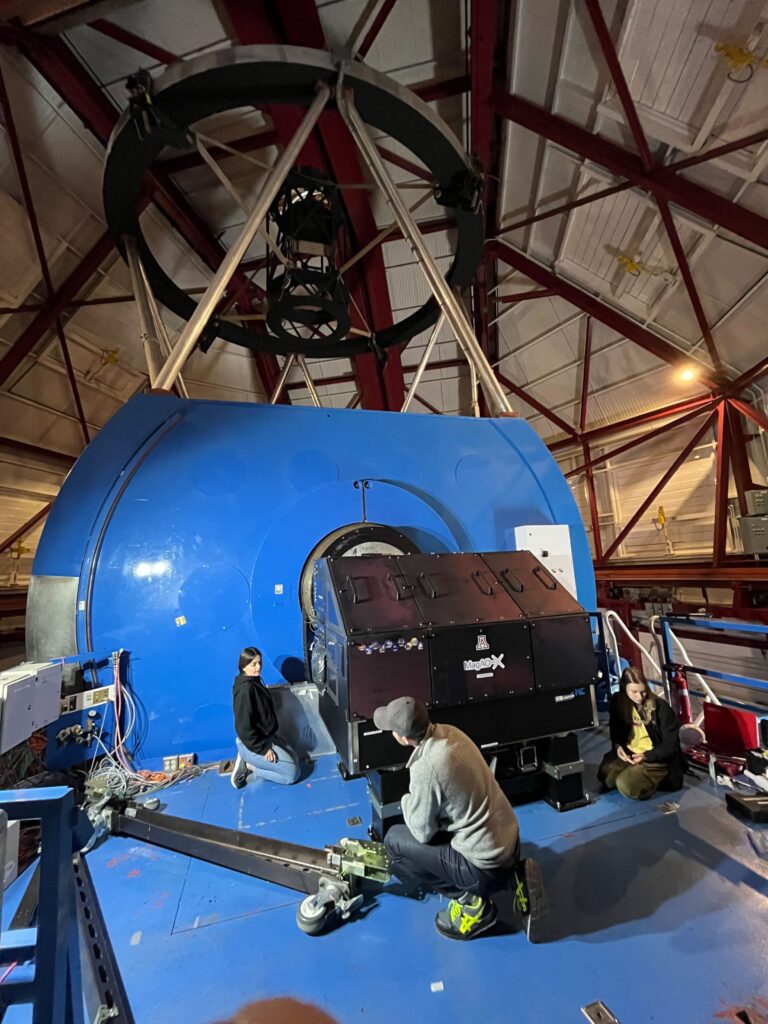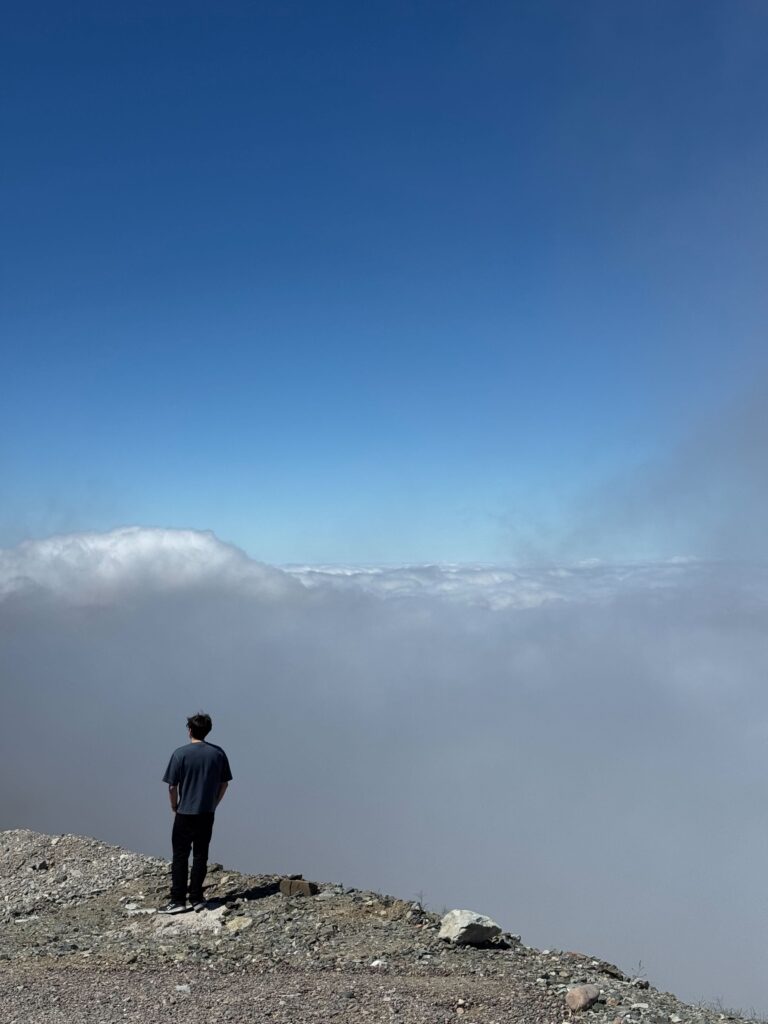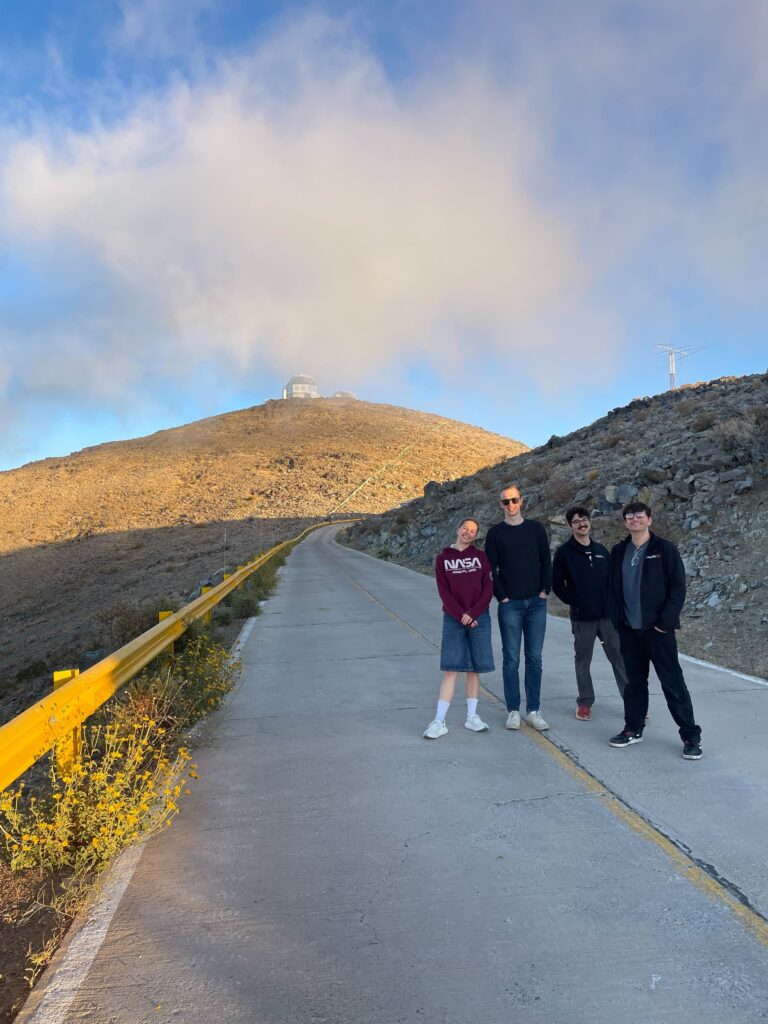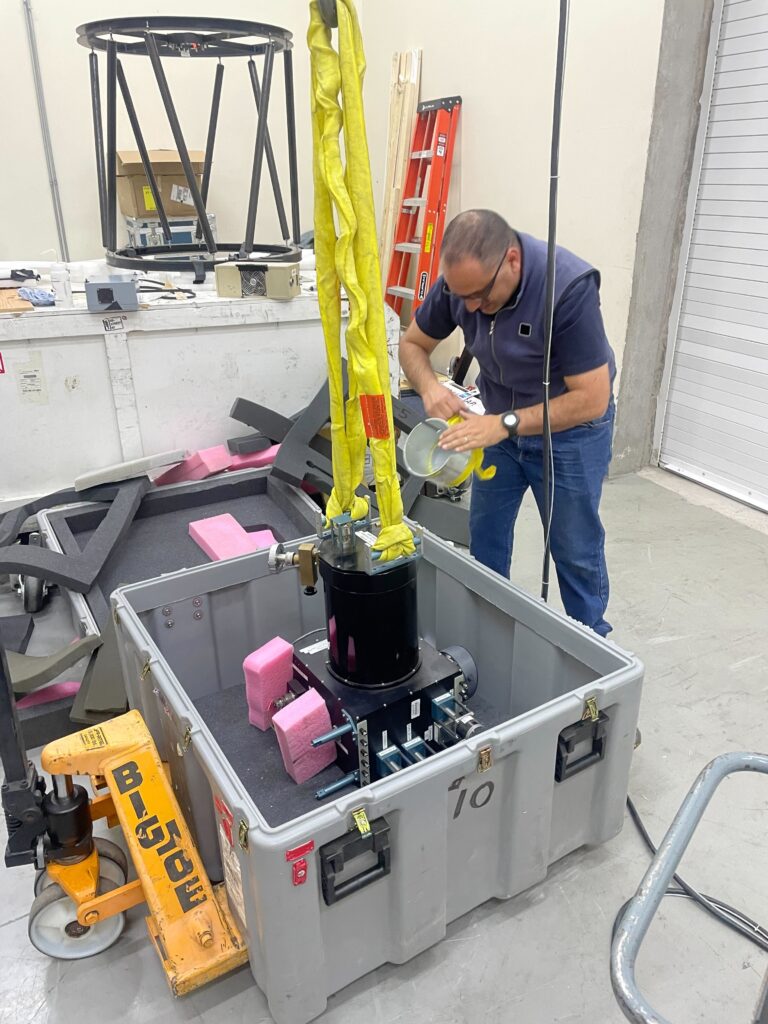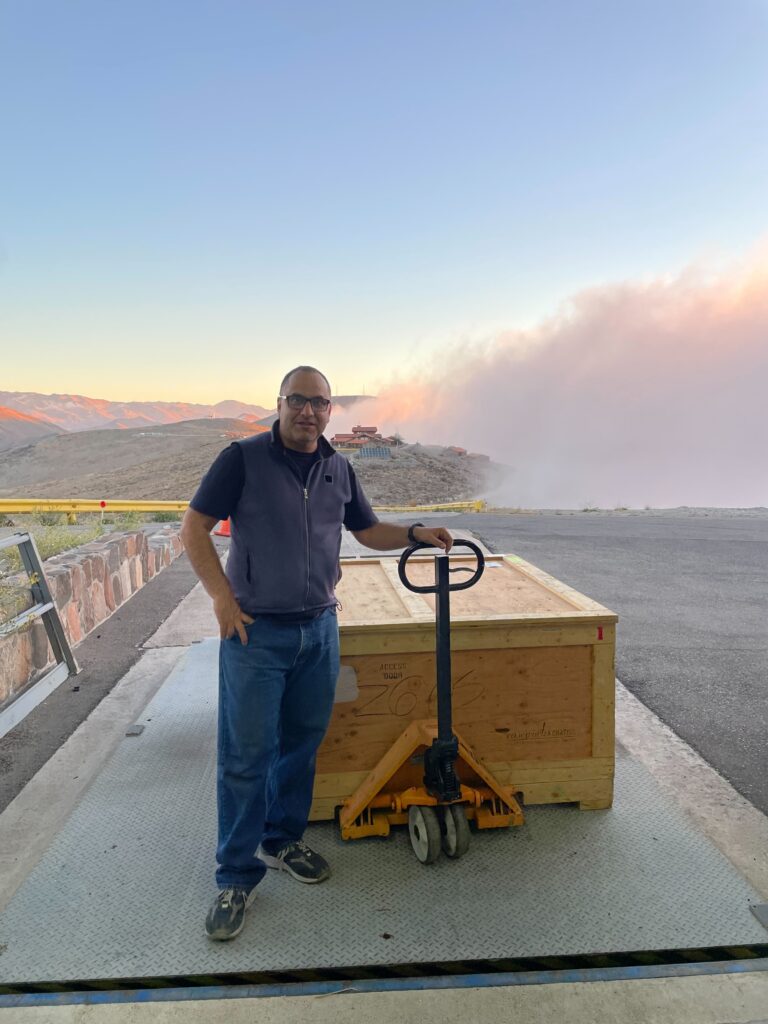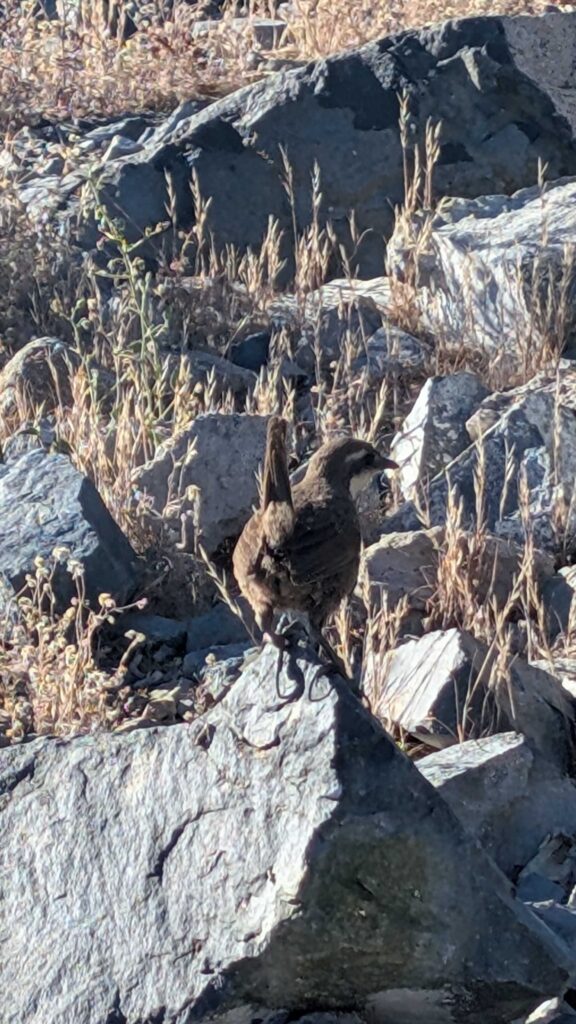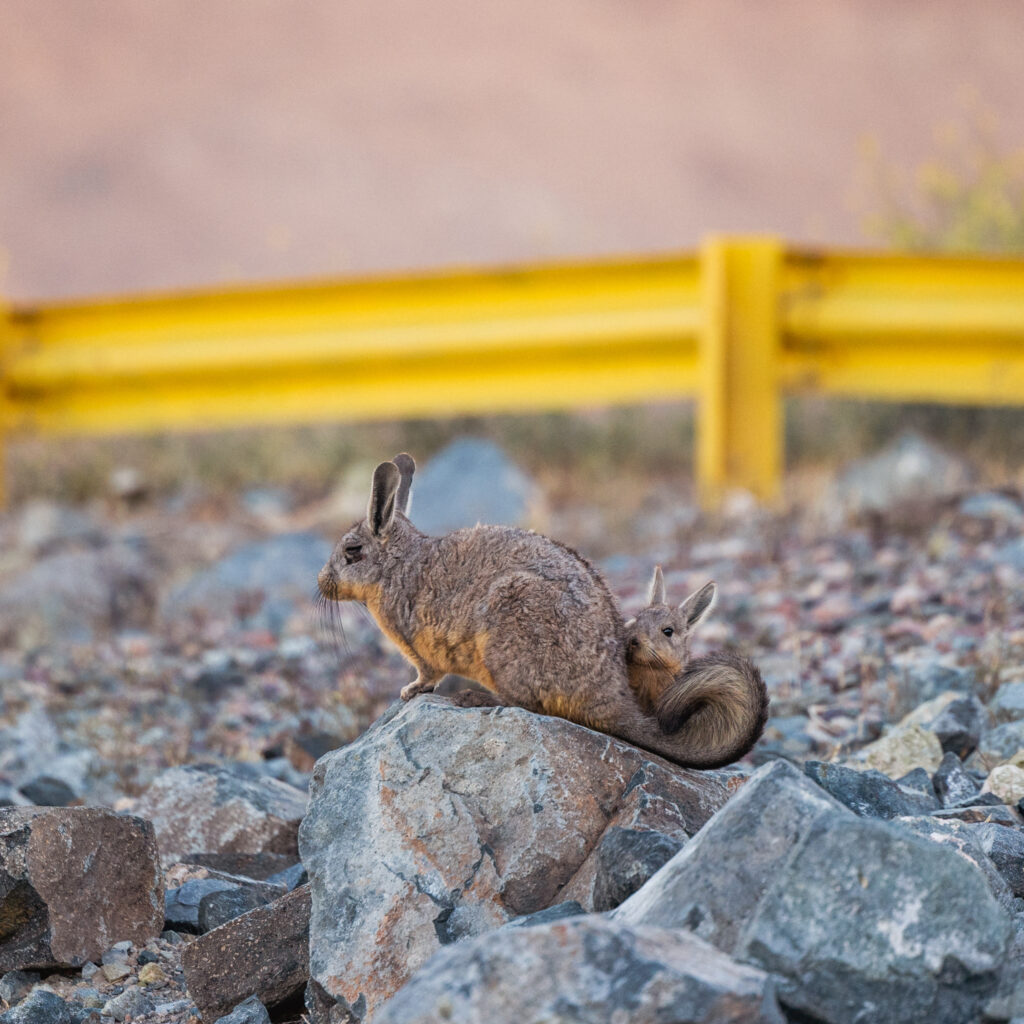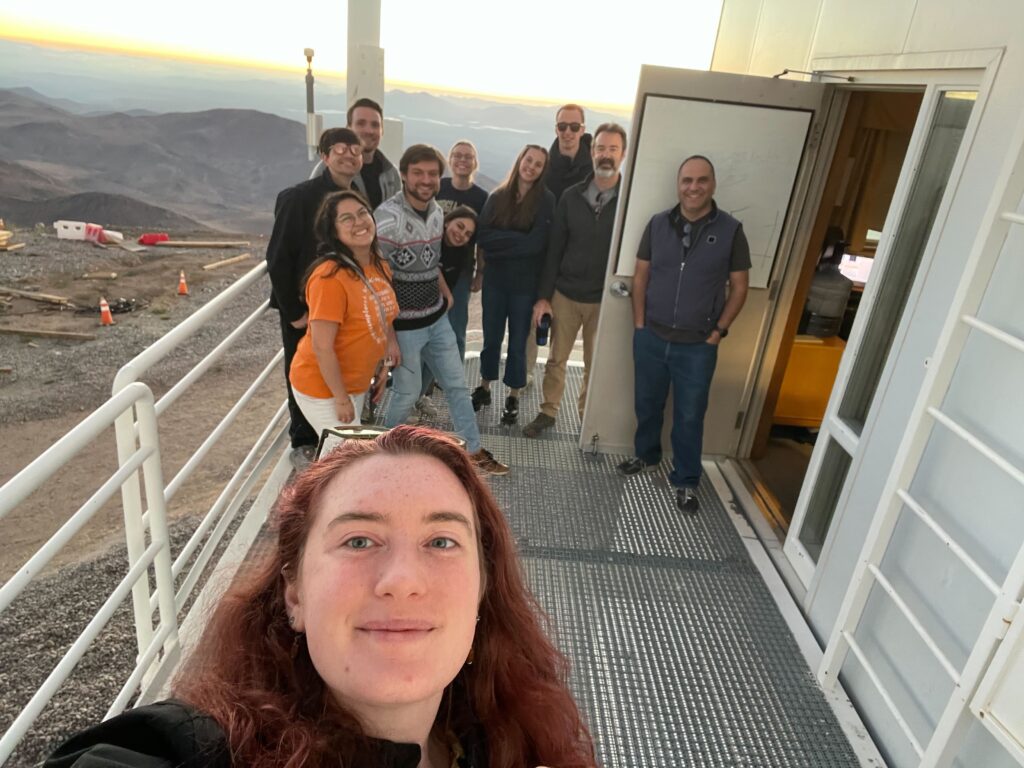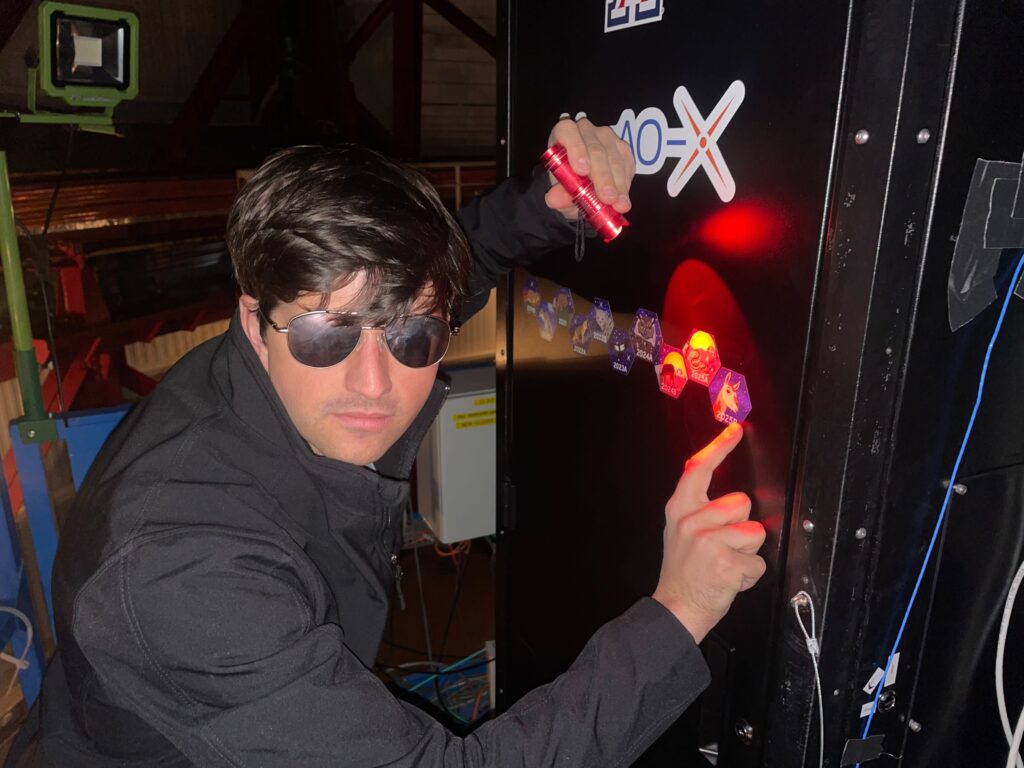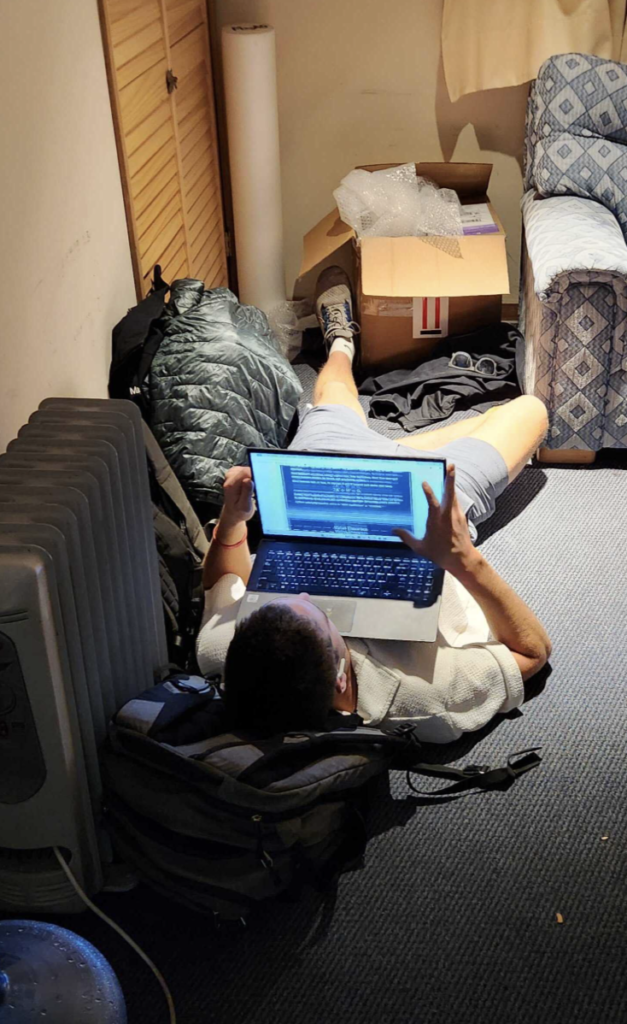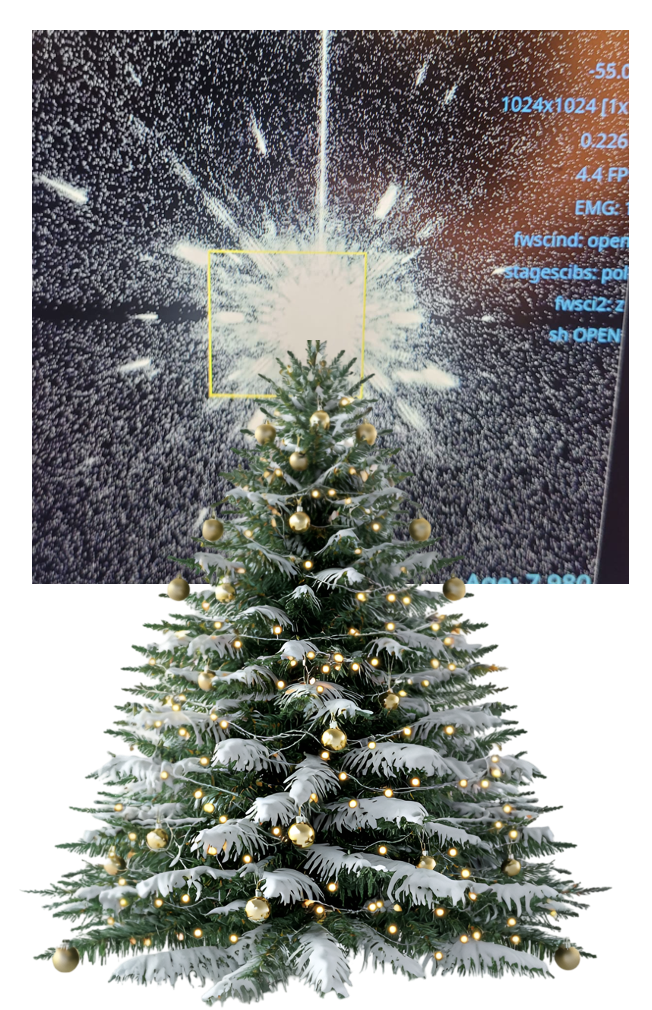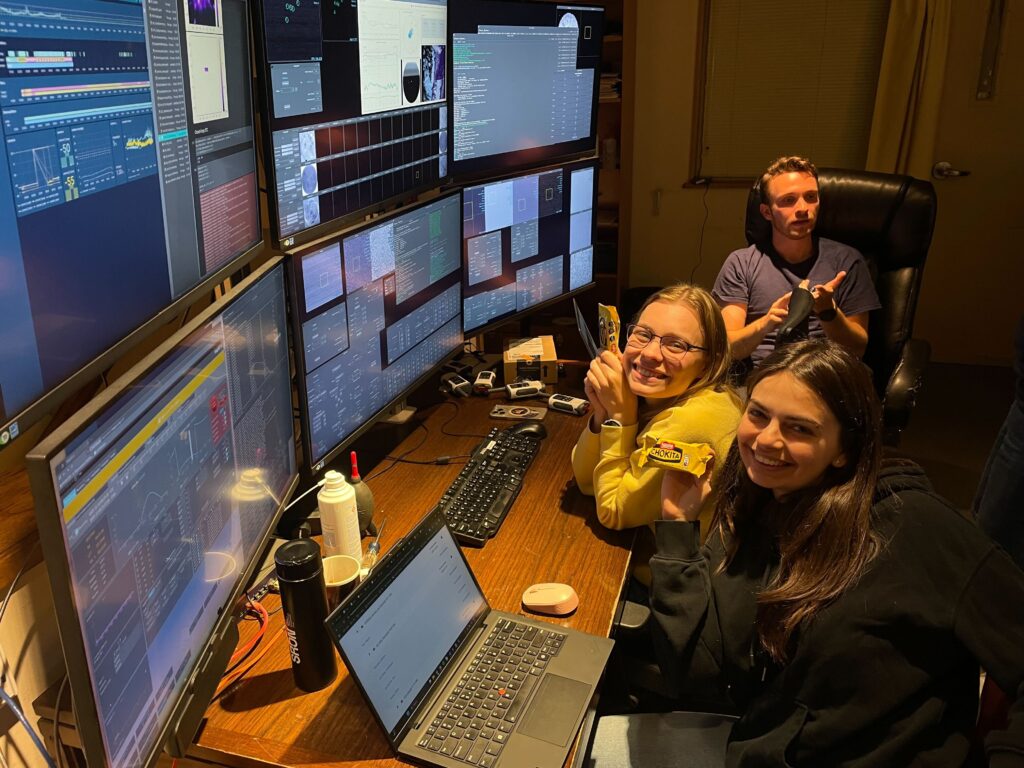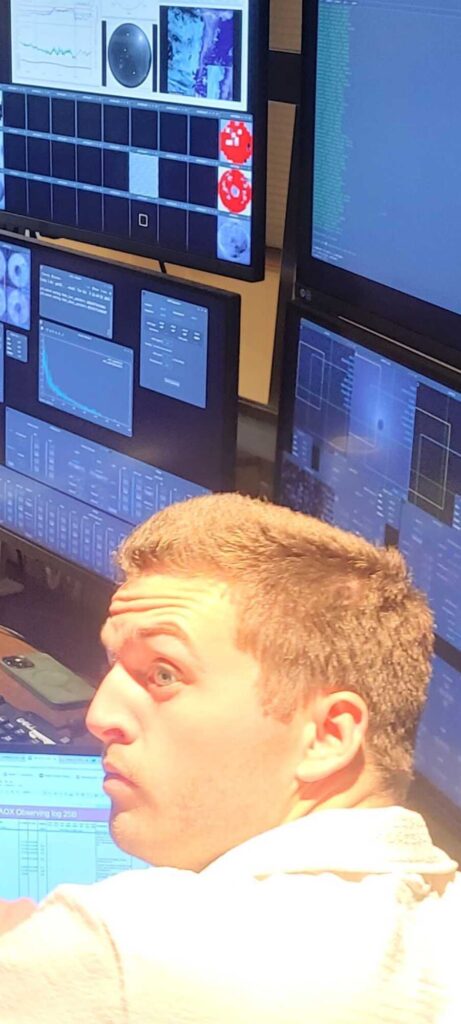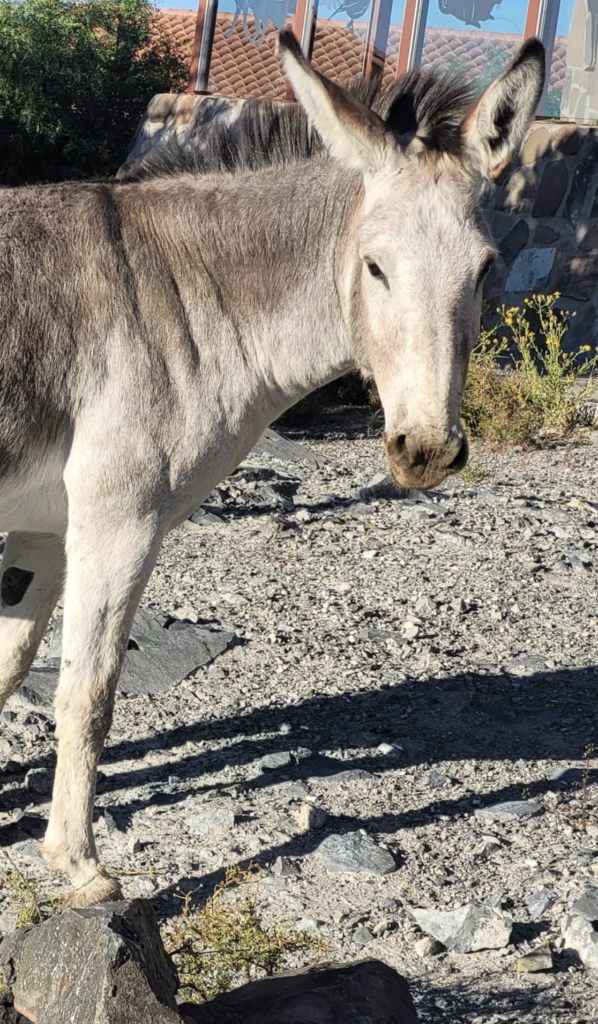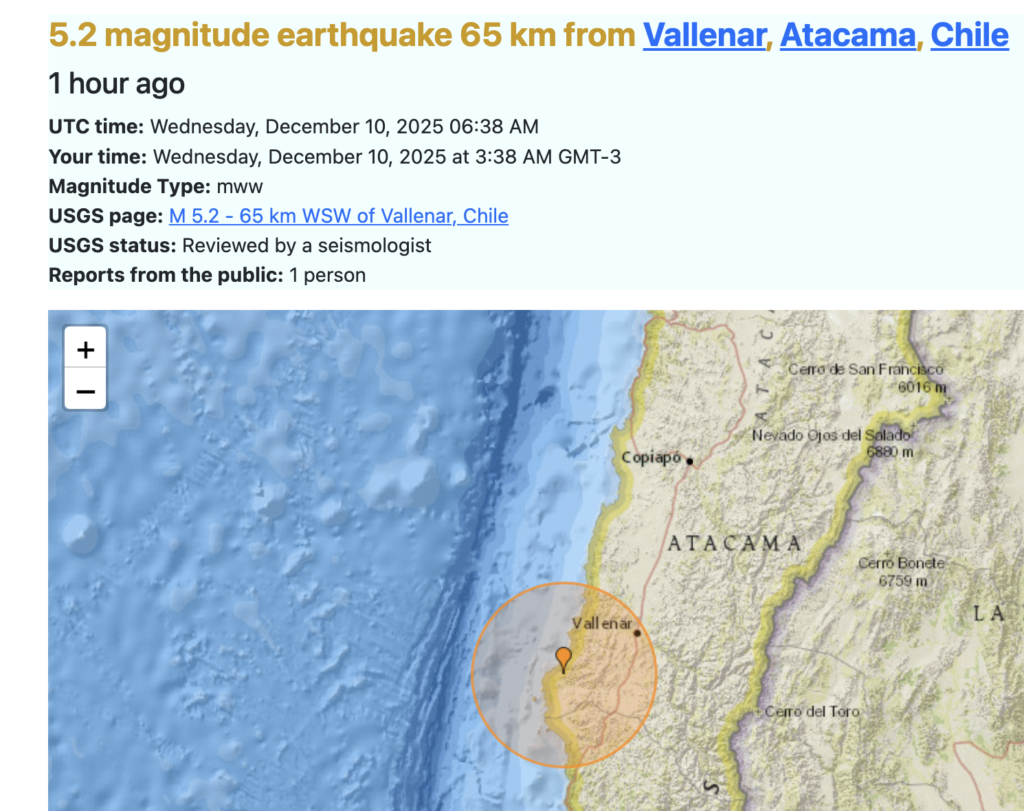PASADENA, CALIFORNIA – Every few years, an eclectic group of scientists and engineers gathers in a scenic location to discuss the minutiae that come with taking pictures of really dim things next to really bright things. The Spirit of Lyot conference is named for one Bernard Lyot, a French astronomer known for inventing an instrument to observe the Sun’s corona without having to wait around for a solar eclipse.
Early on in the conference, one of the organizers clarified that this gathering was about Lyot’s “spirit” meaning legacy, not his literal ghost. Now, we here at MagAO-X most certainly honor Lyot’s high-contrast legacy by observing binaries, disks, and planets. But, it’s also worth mentioning that if there’s one thing optical engineers are haunted by, it’s ghosts.
For those unfamiliar, a ghost is a technical term used in optics to describe an unwanted reflection. Put simply, this could be anything from seeing your own face reflected back at you when you’re trying to look out the window to having your laser bounce back off lenses it’s supposed to transmit through. Optical ghosts are pernicious little things; they can cause unwanted spots on your camera or even render your g-band filter practically useless. They’re difficult to get rid of, but pretty easy to introduce. So, in order to understand Dr. Bernard Lyot’s true opinion of MagAO-X’s contribution to his conference, I have taken it upon myself to summon his (optical) ghost this Friday the 13th and ask about his approval or disapproval on some things we did last week.
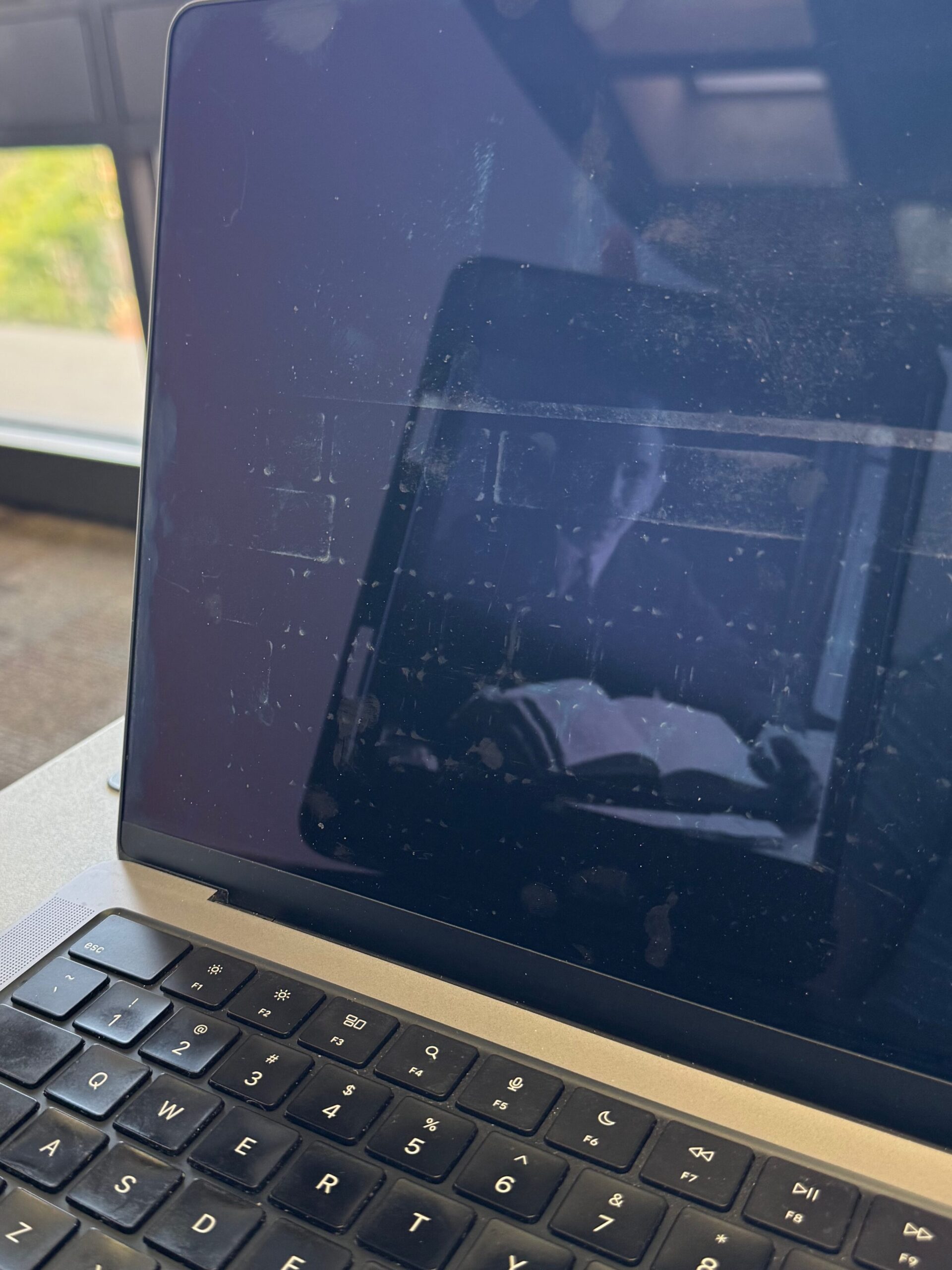
APPROVED: A Plethora of Posters
From graduate students to postdocs, Lyot agrees we kept MagAO-X well-represented at both poster sessions throughout the week. In no particular order:
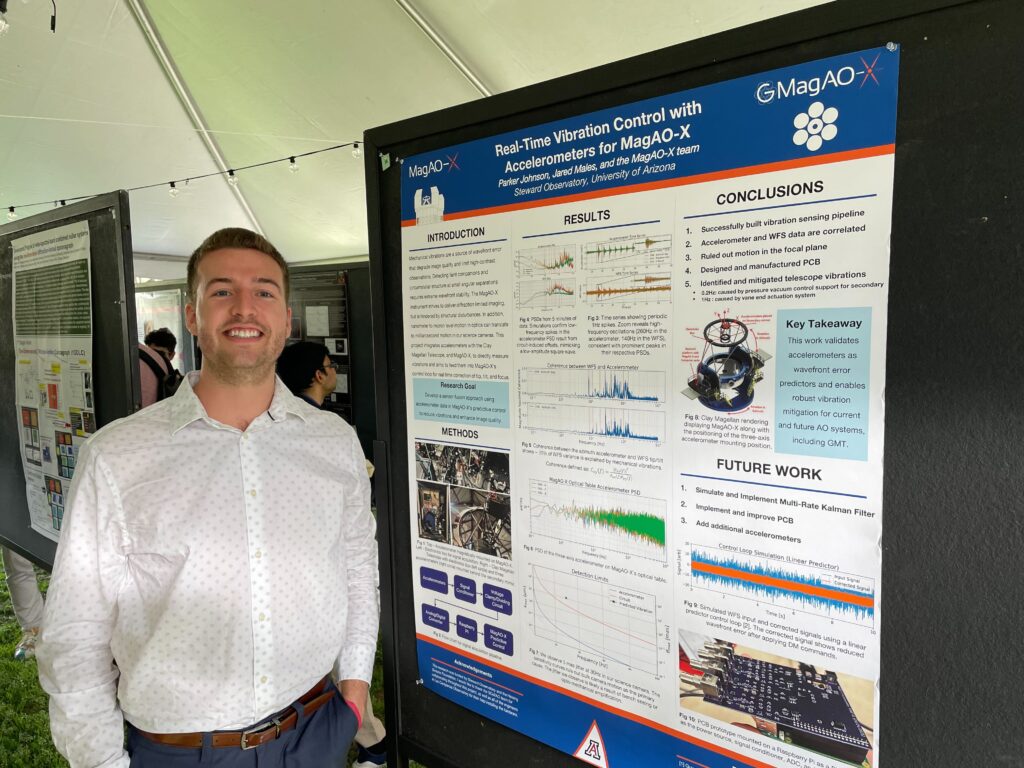
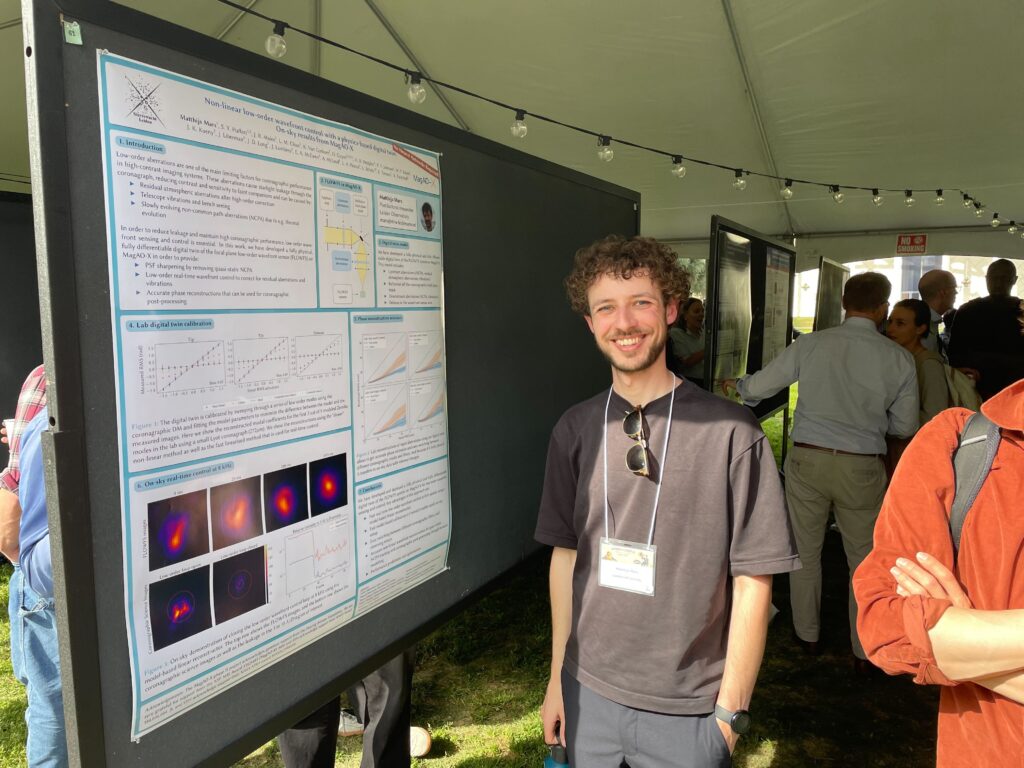
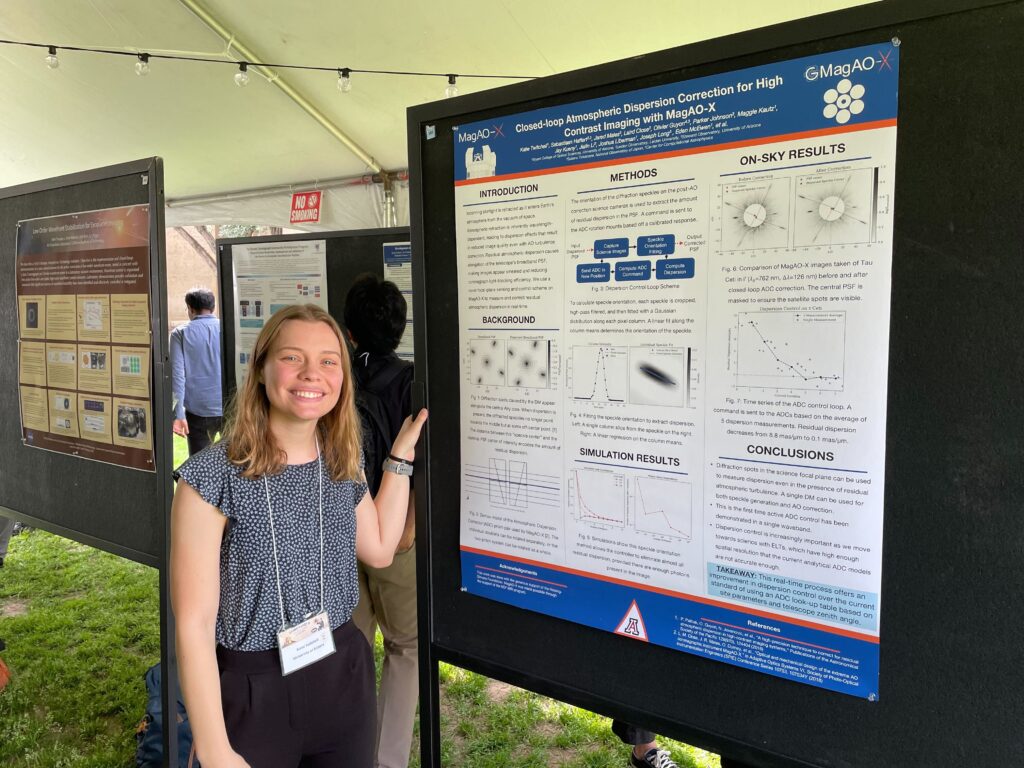
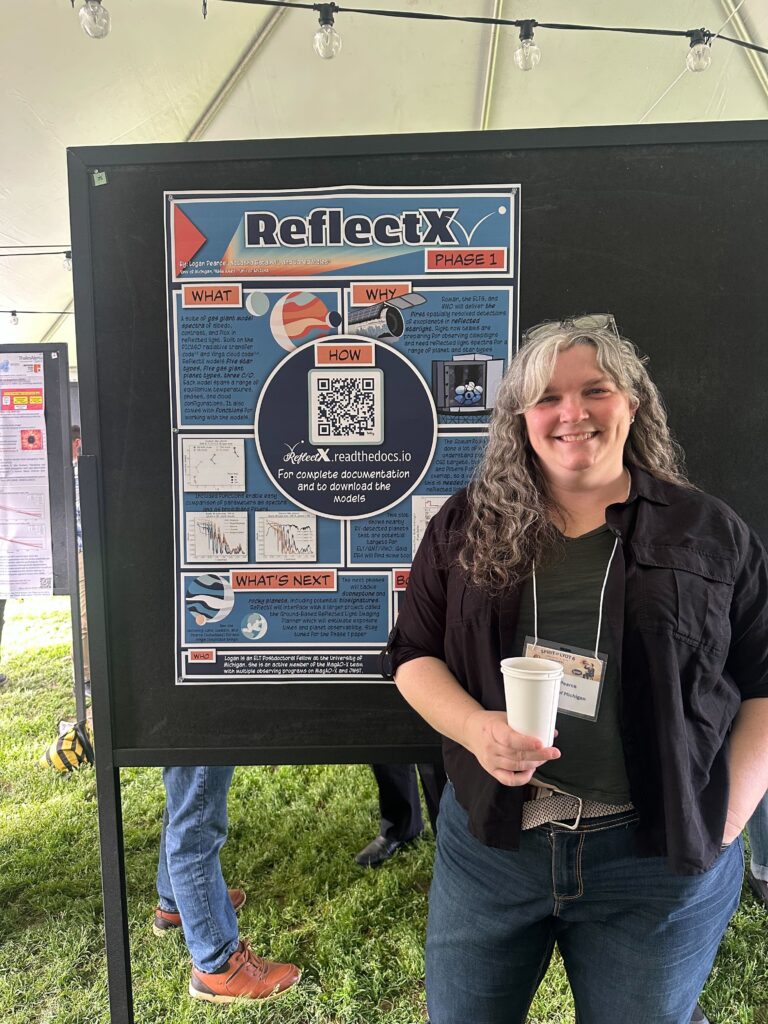
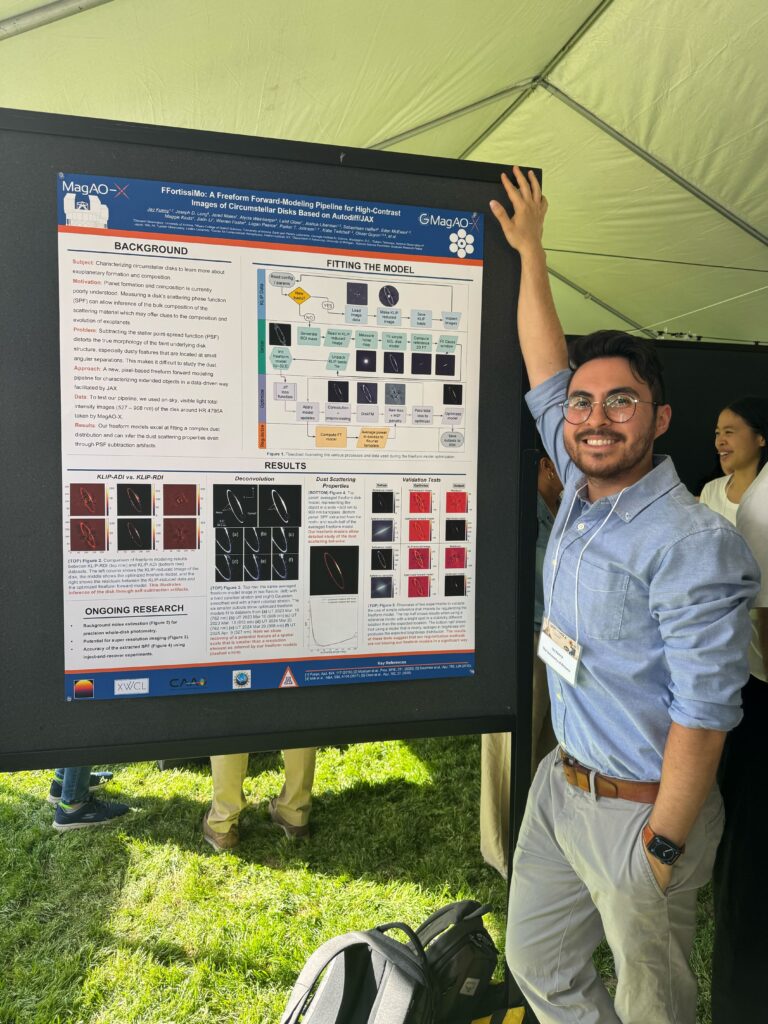
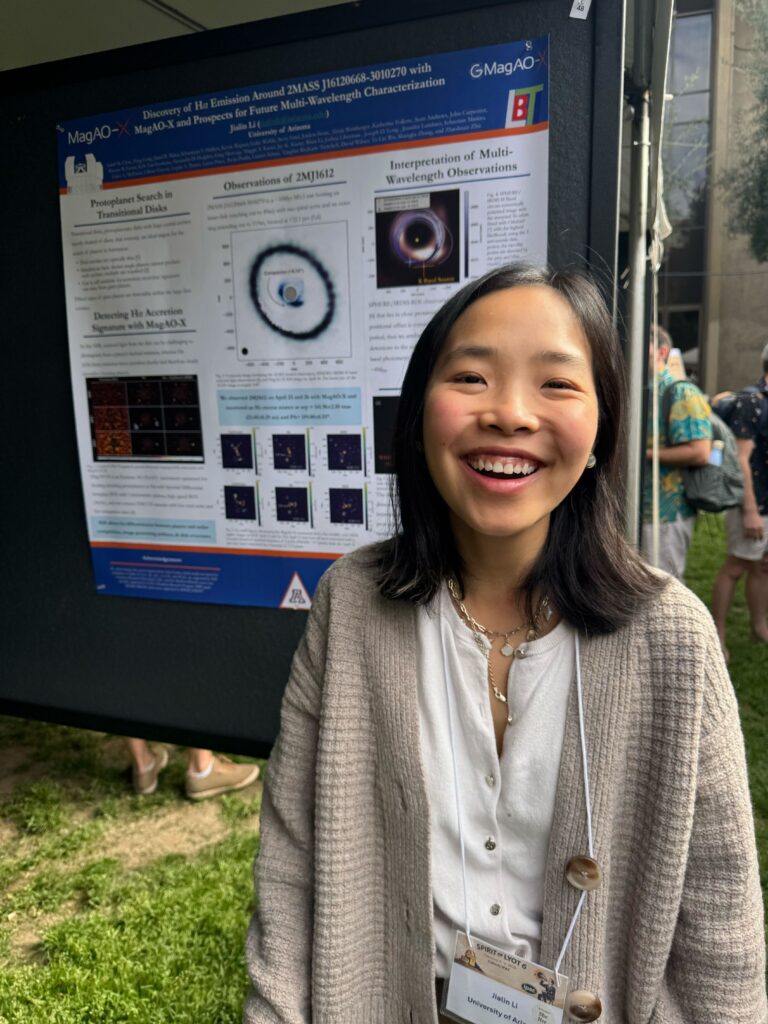
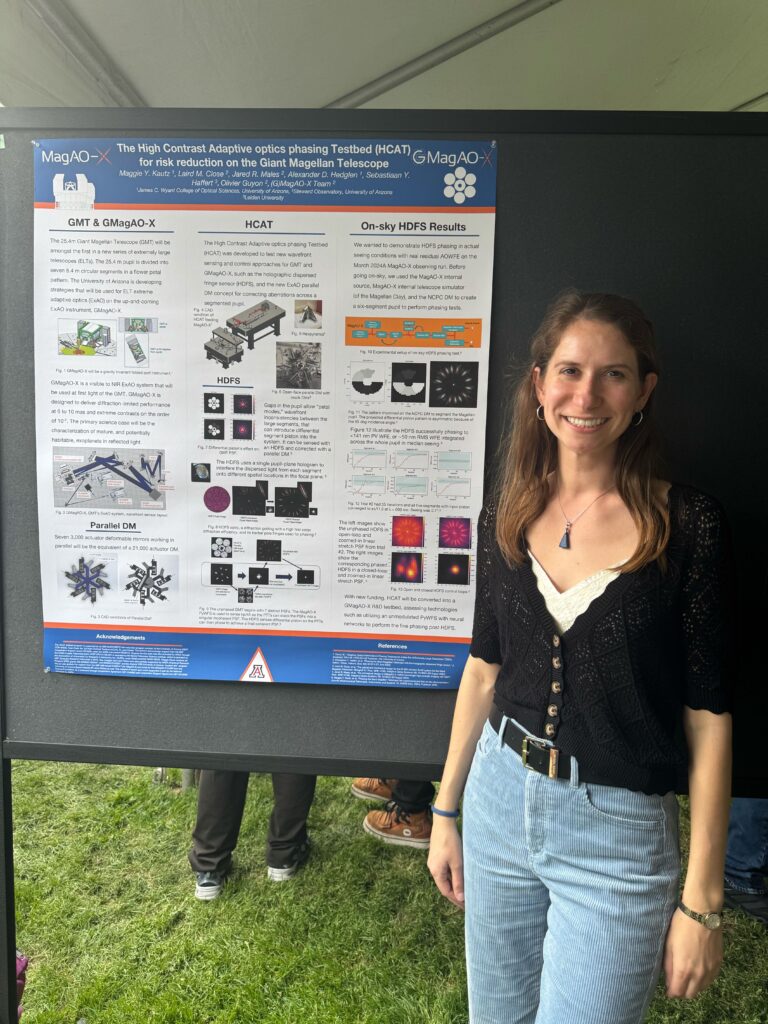
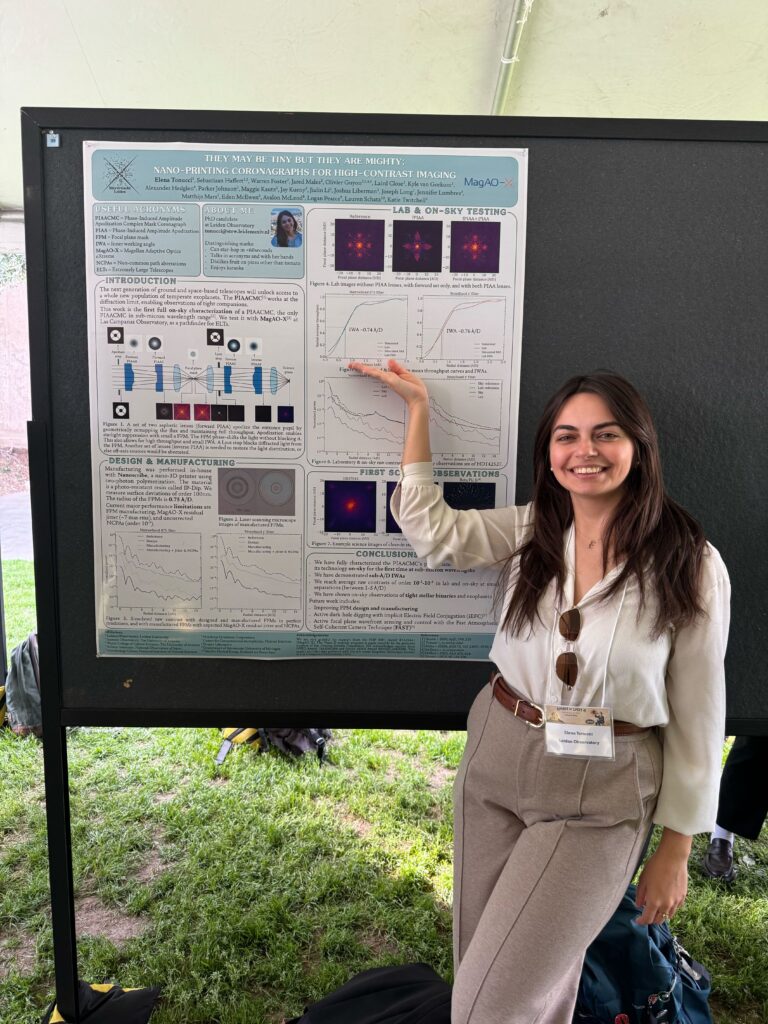
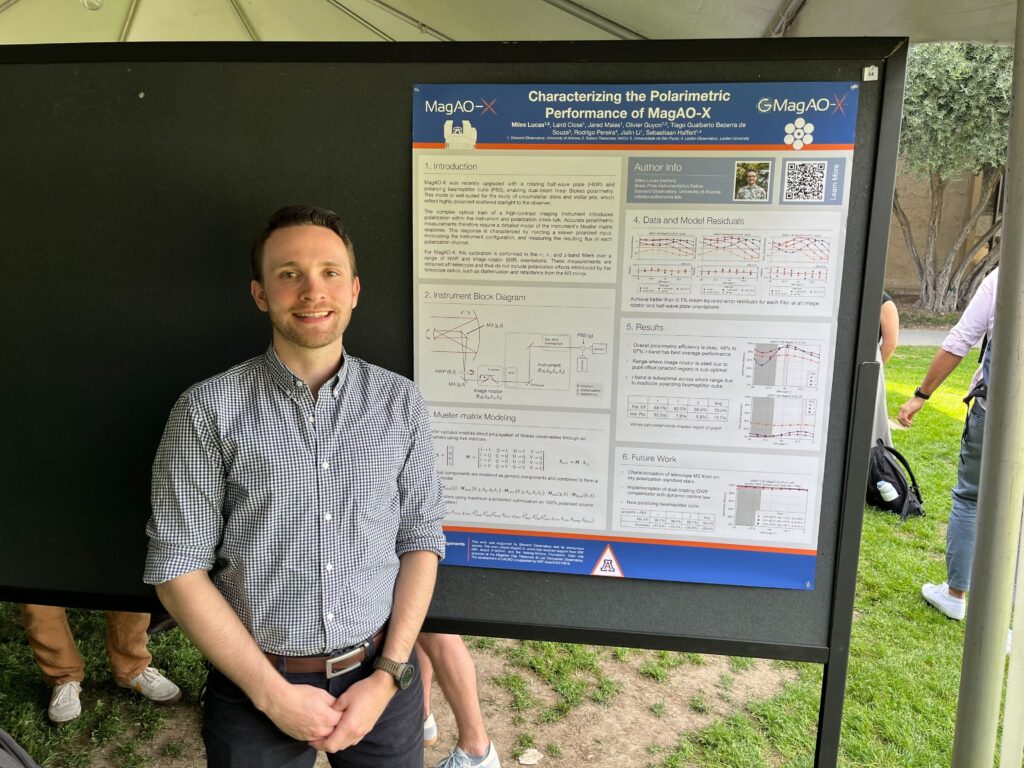
DISAPPROVED: Yassification
“Mais c’est quoi ça??”
-the spirit of Lyot, upon being shown the AI-yassified versions of our poster presentation photos
Out of respect for him (and Hayao Miyazaki), I will not include them here.
APPROVED: Talks on Talks on Talks
During the instrumentation sessions, we found ourselves well-represented. On Thursday, Jared talked about next-generation HCI with GMagAO-X, Laird got the chance to talk about WISPIT 2b, and Miles did some polarimetry show-and-tell about some disk observations. We also got to hear talks from Rico, Louis, and Adam, members of Sebastiaan’s group in Leiden, and Saraswathi, a postdoc from UASAL.
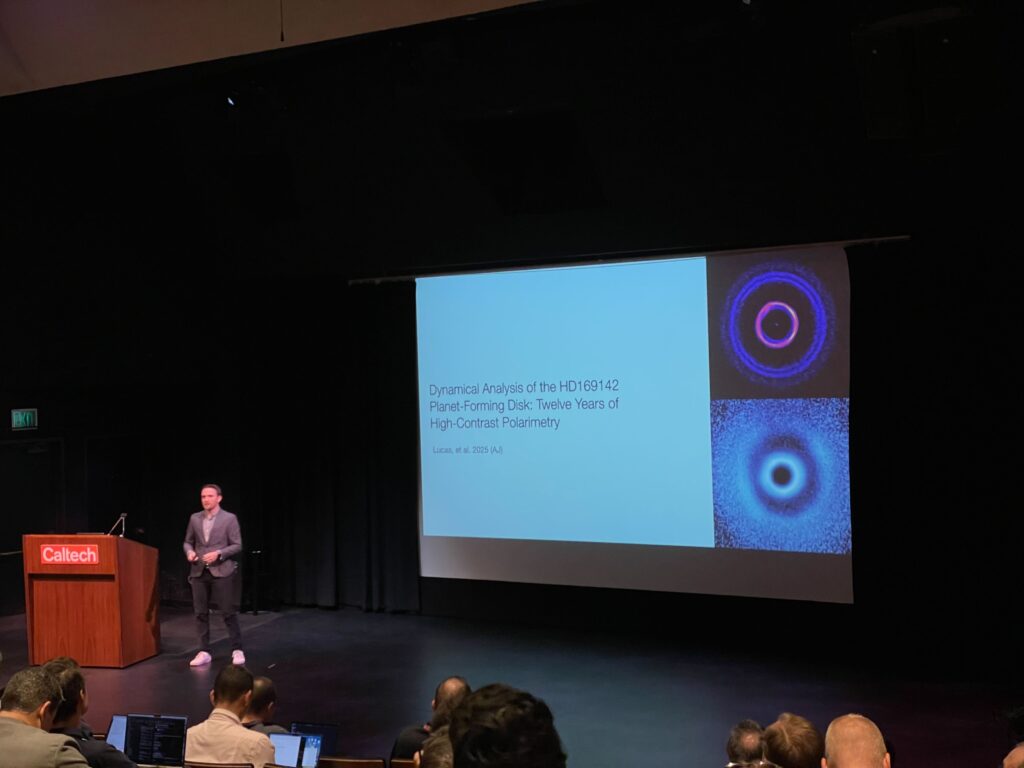
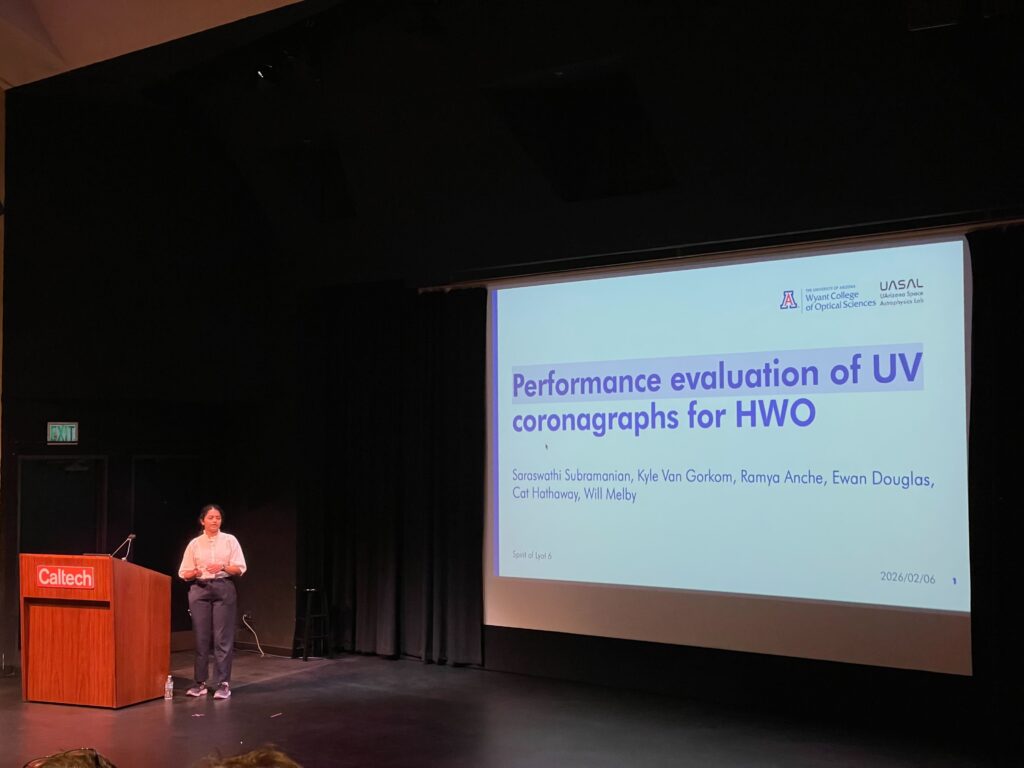
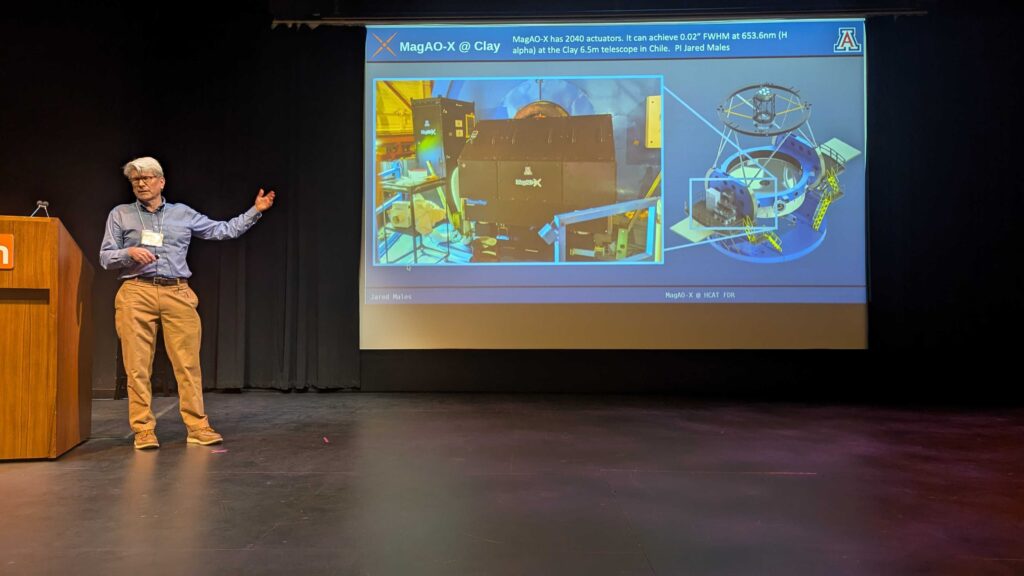
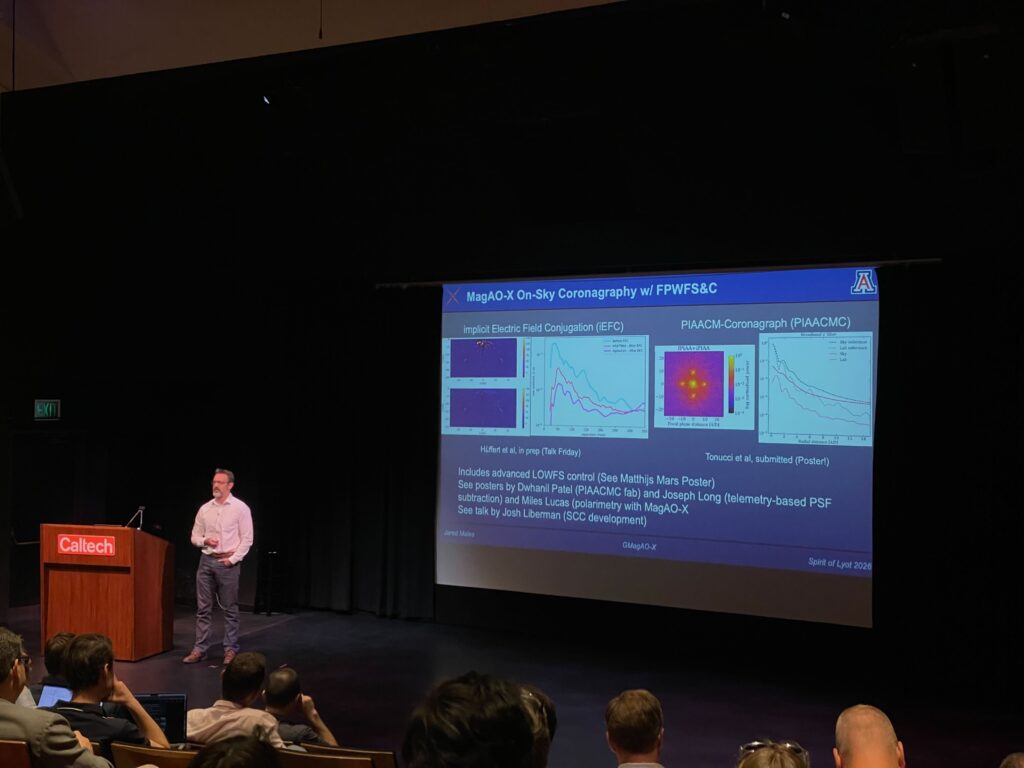
On Friday, Josh told us about the highs and lows of building the Self-Coherent Camera on the CACTI testbed, and Sebastiaan closed out the MagAO-X talks by giving an overview of the many, many emerging technologies in our field.
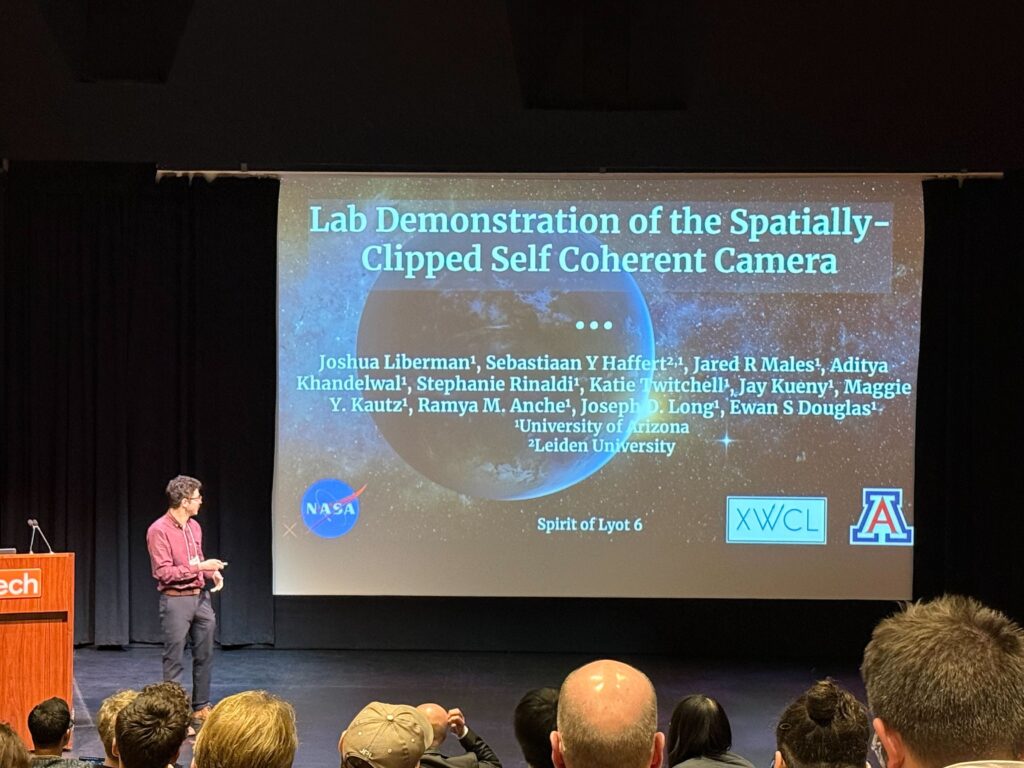
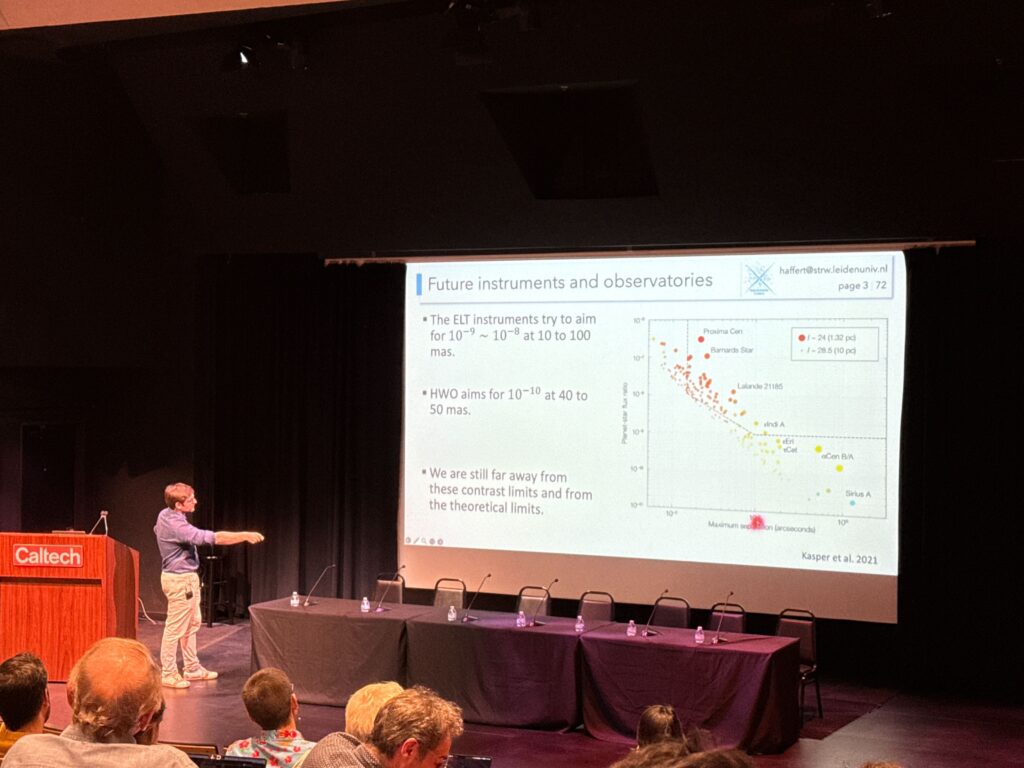
DISAPPROVED: Upside-down Glasses
A couple of us took the chance to tour NASA JPL, which got a seal of approval from both the four of us and the Spirit of Lyot. However, he (rightfully) poked fun at the picture of my failure to understand how 3D glasses work.
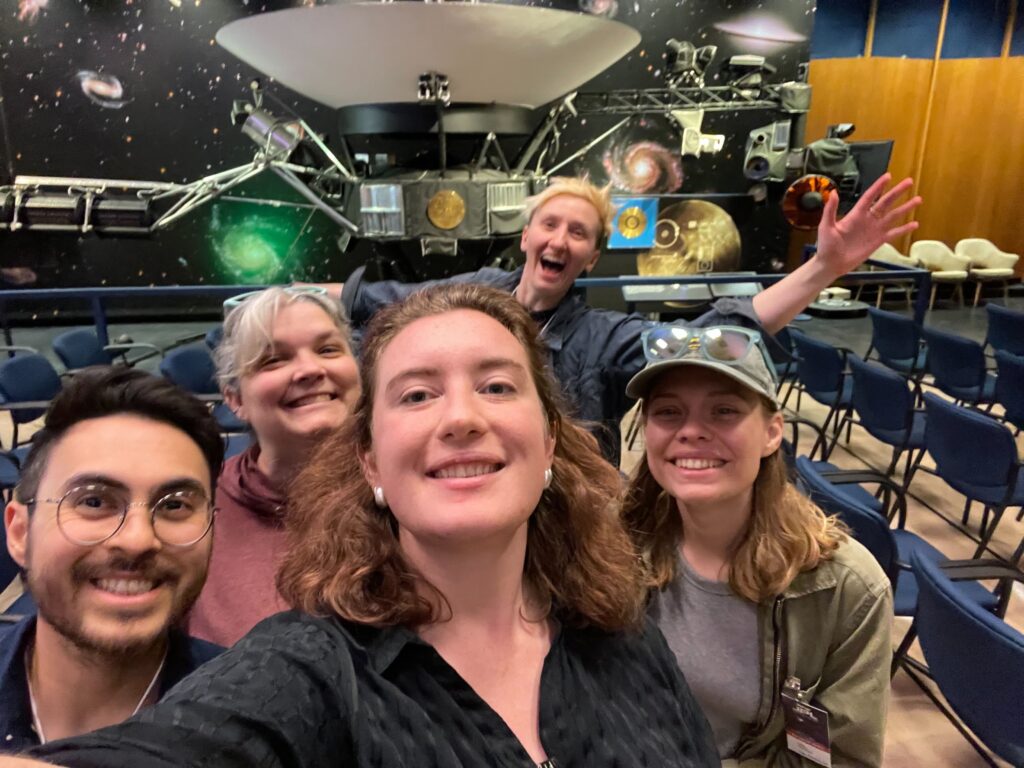
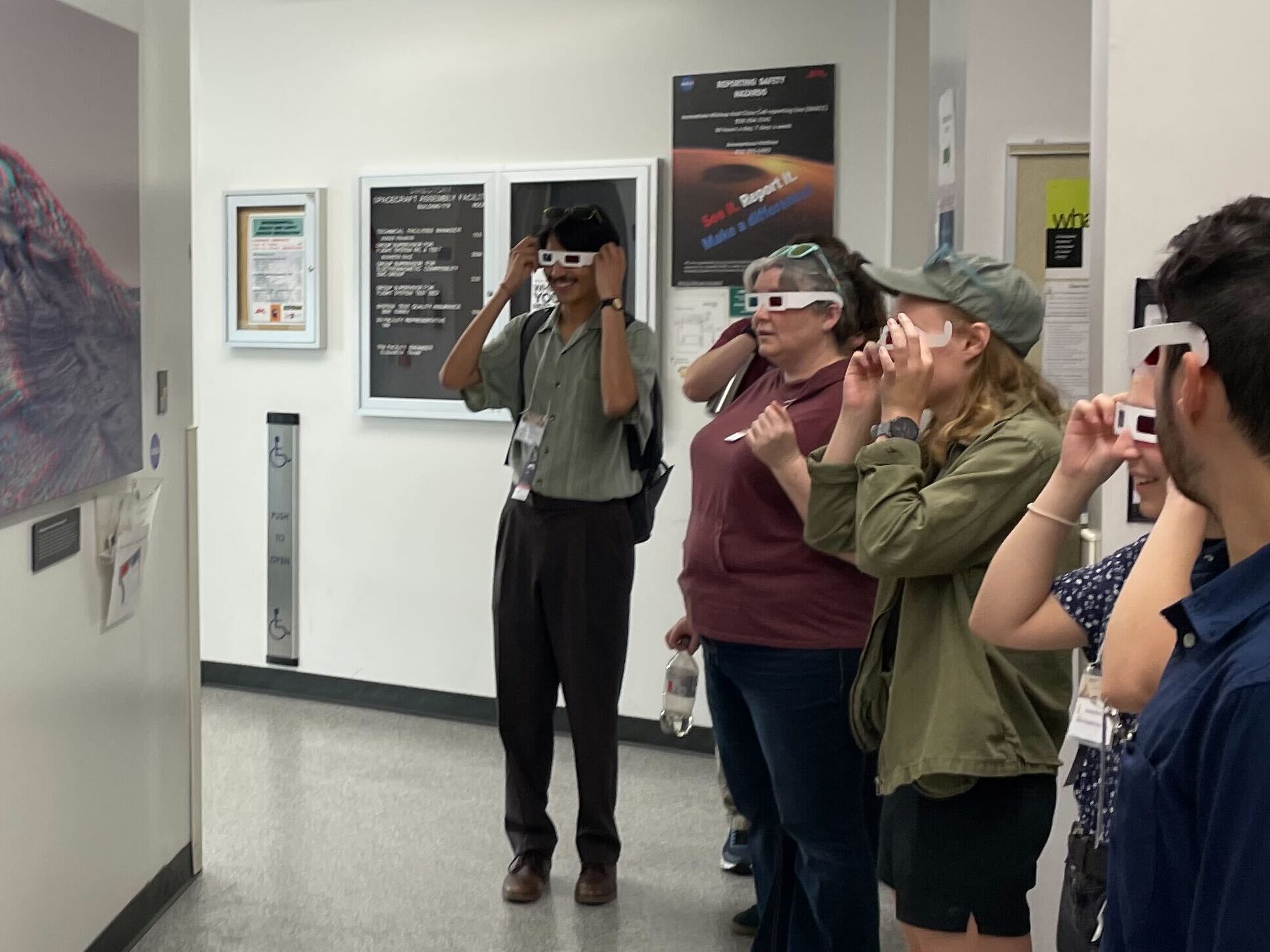
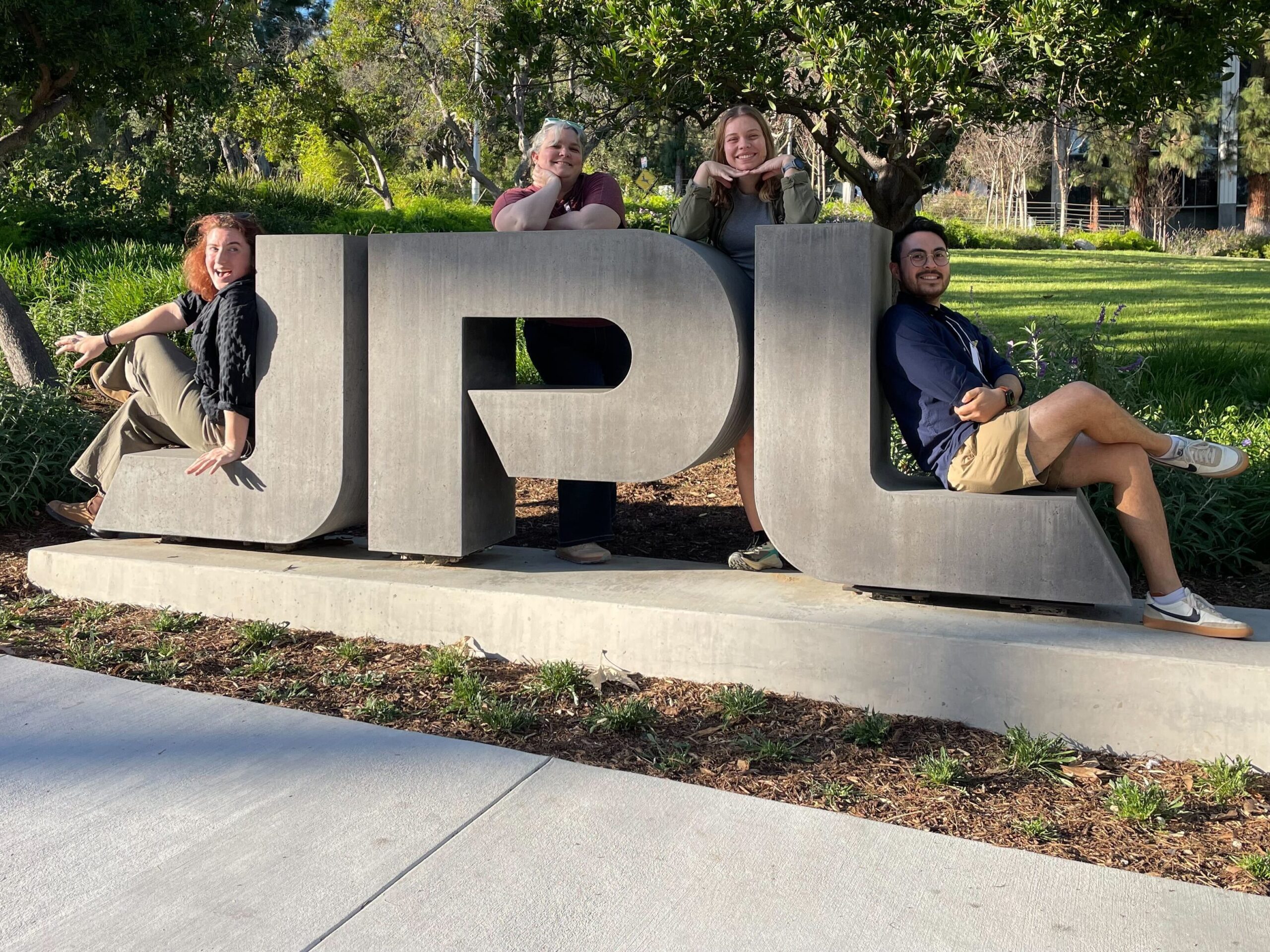
APPROVED: Family Dinner
The conference dinner was held at Caltech’s Athenaeum. Not everyone could make it (places to be, e.g. Target), so we made sure to get a family photo beforehand.
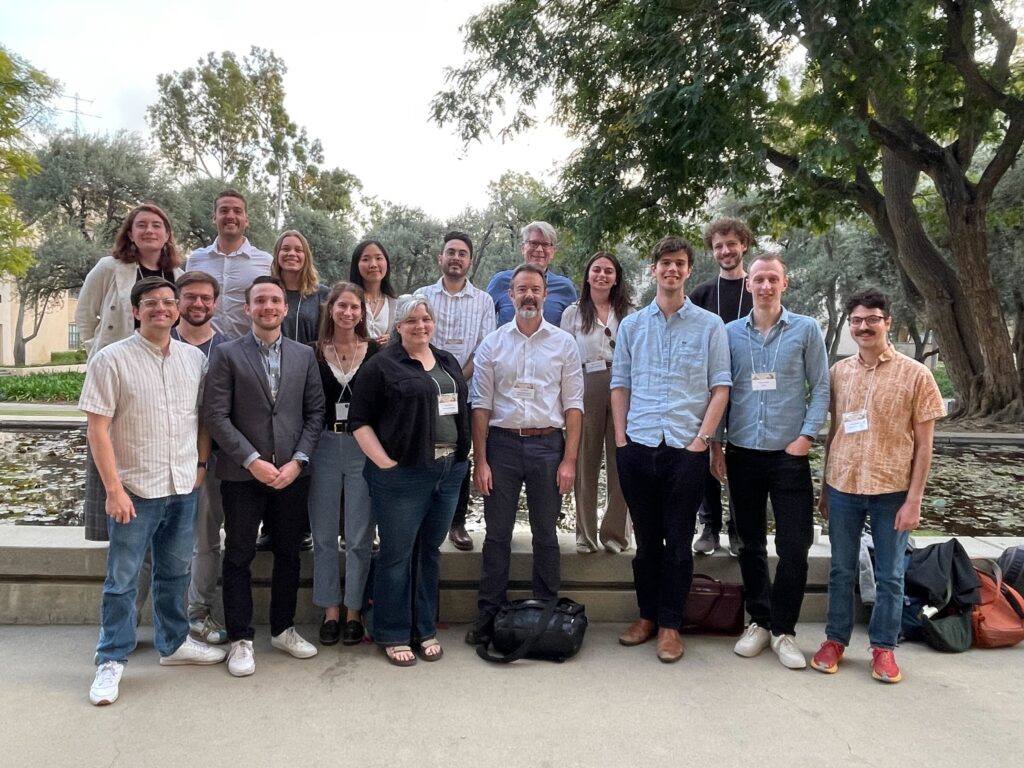
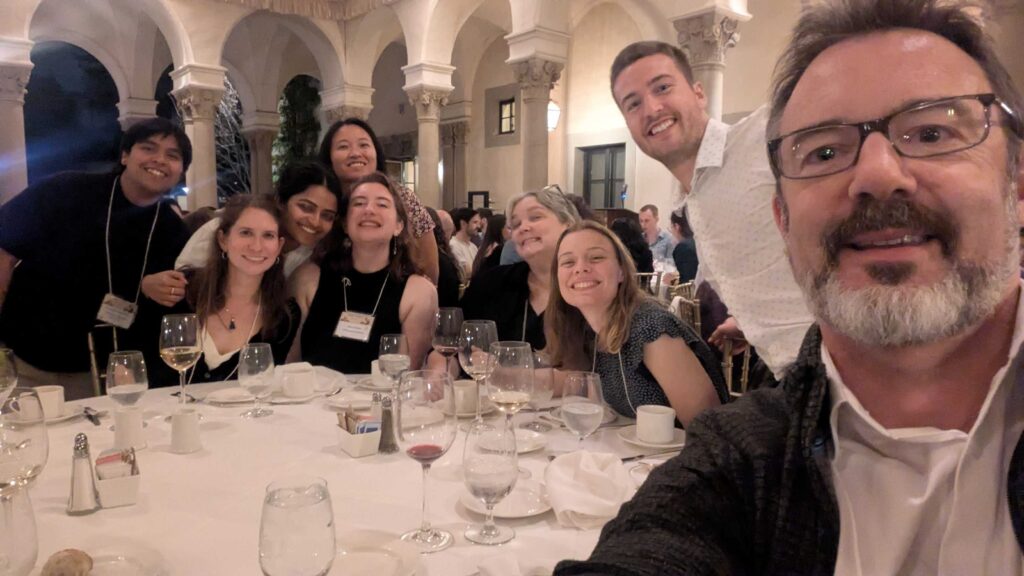
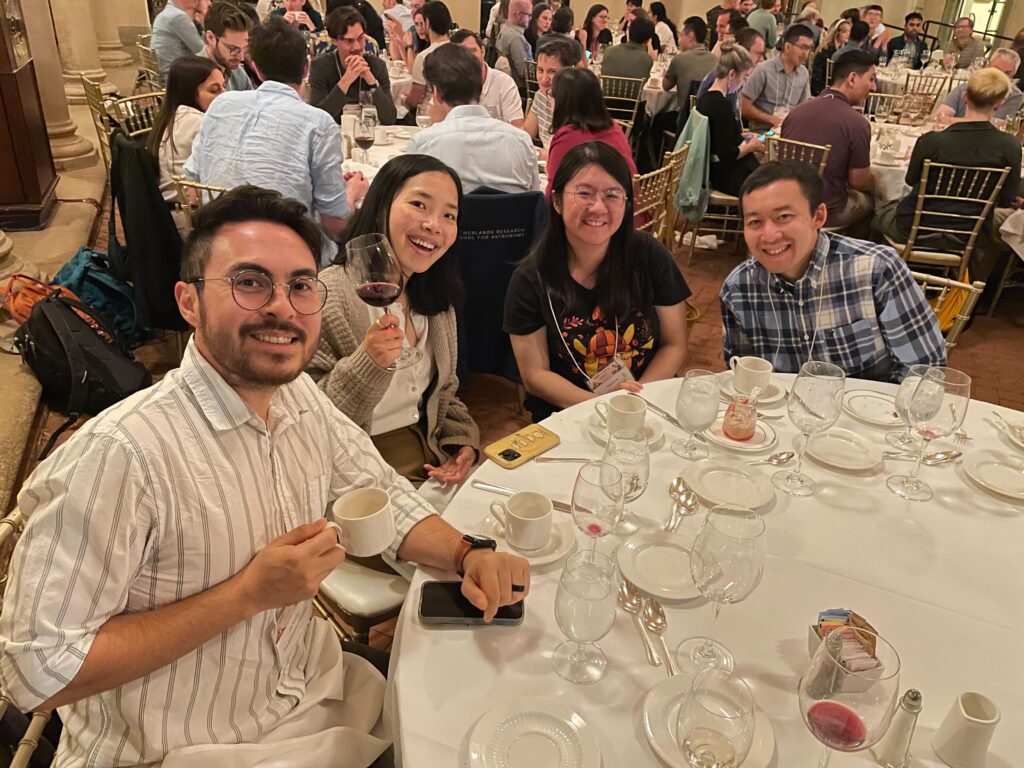
DISAPPROVED: Etiquette Ignorance
I have no visual to illustrate this, but let’s just say Parker and I exchanged a very panicked glance when we saw the number of utensils we were expected to use at this dinner. Luckily we had a couple of former Navy Nukes to teach us the difference between a salad fork and a regular one.
APPROVED: Astro-tourism
If you believe his Wikipedia page, Lyot was also an avid mountaineer and even trekked to the Pic du Midi observatory when it was only accessible by cross-country ski. Naturally, his spirit approved of the group that stayed a little bit longer to make the journey up Mount Wilson.
DISAPPROVED: A Seat-cushion Mishap
Ever wondered why, during the standard aircraft safety briefing, they tell you to ask for assistance if you lose an electronic device in your seat? Well, I no longer wonder that. Let’s just say the pilot himself came out to help at one point. The important part is that Josh and his earbud were reunited, safe and sound.
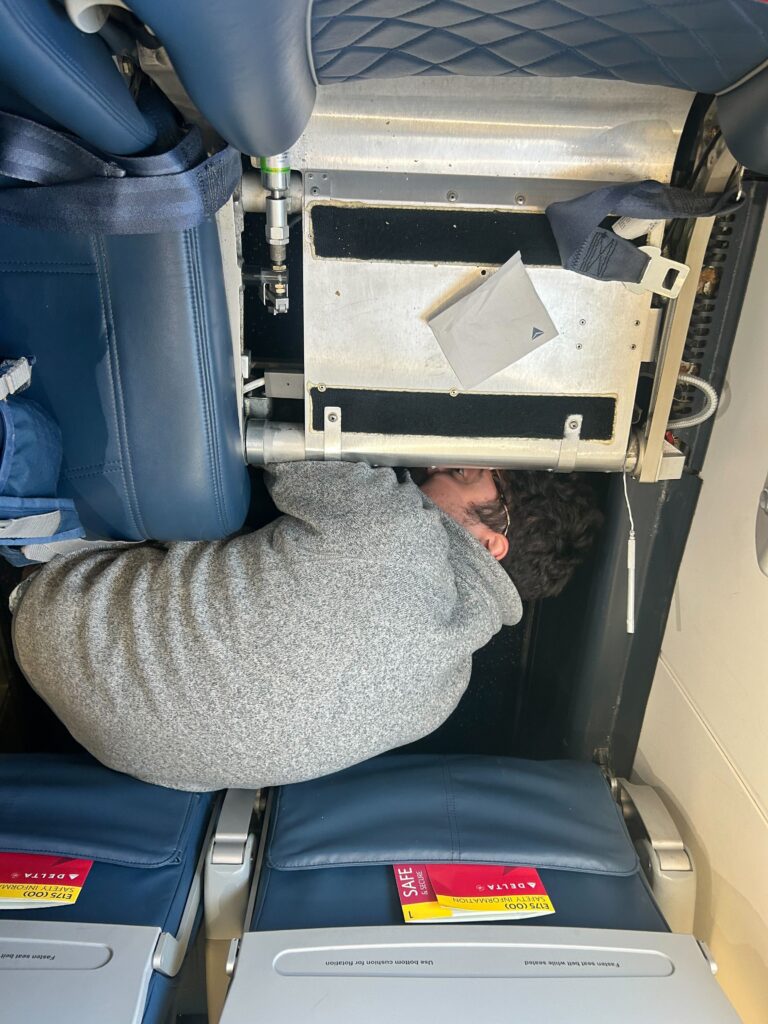
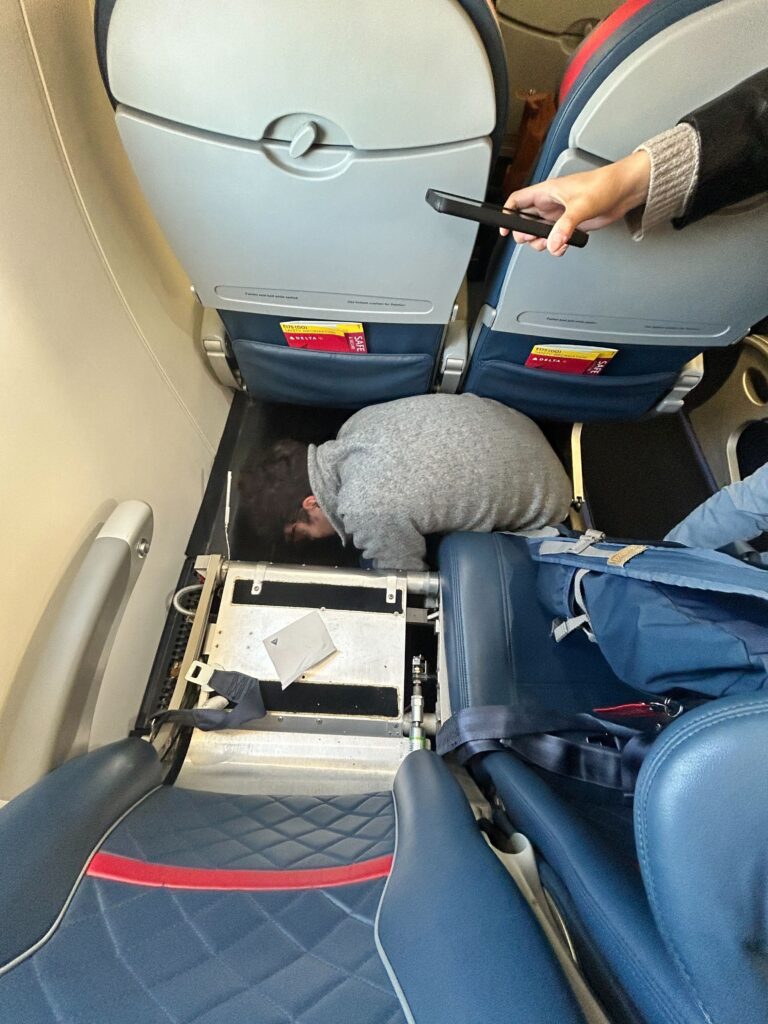
APPROVED: Song of the Day
In the spirit of Lyot: a French song that talks about both the Sun and finding something that exists, but was hiding:
